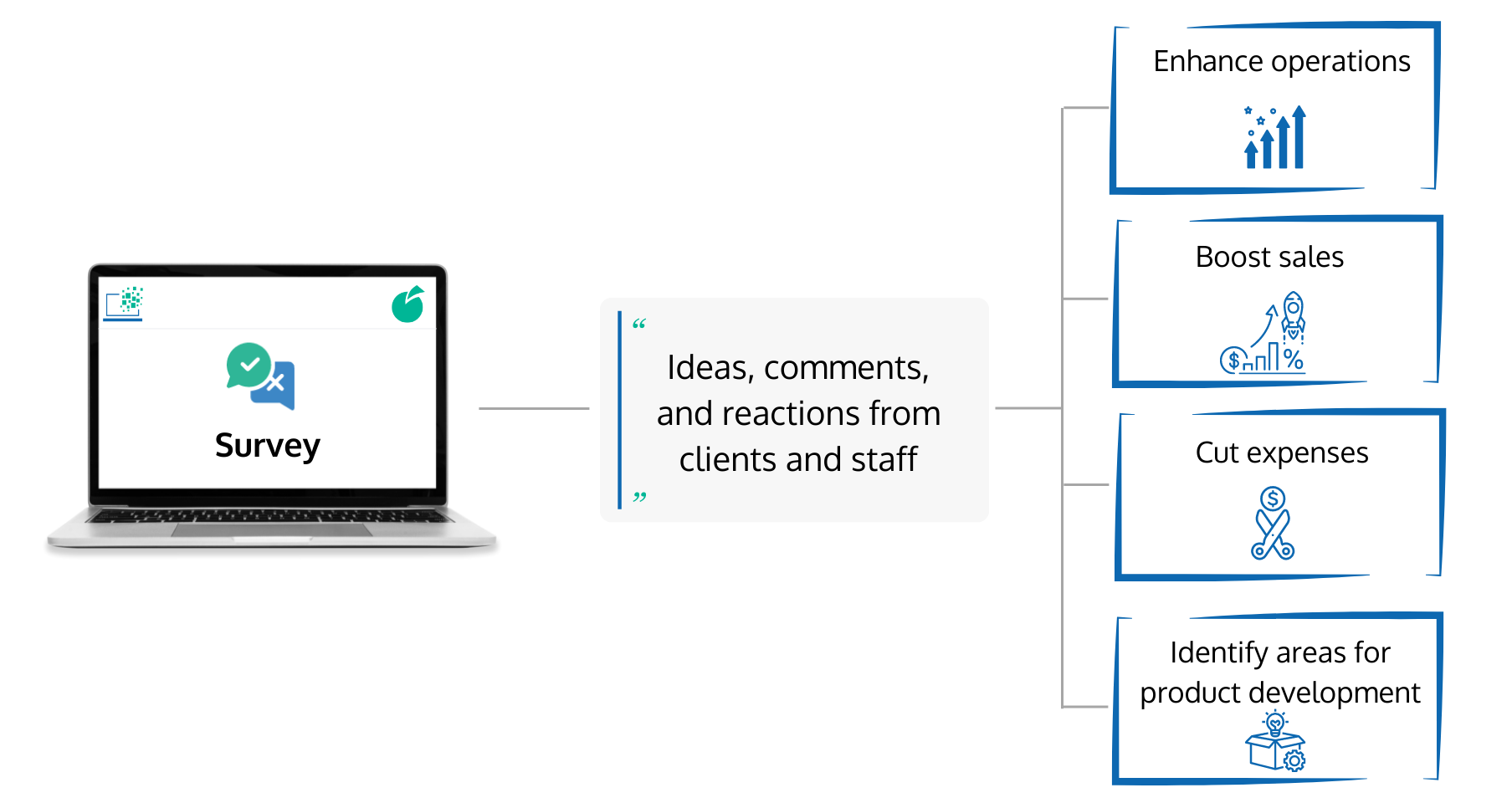- Create and Manage Your CloudSpace in Batoi
- Manage Category Settings in Batoi CloudSpace
- Manage Your Assets and Track Their Maintenance Details in Batoi CloudSpace
- Manage Organizational Contacts in Batoi CloudSpace
- Manage Your Opportunities with Batoi CloudSpace
- Manage Your Inventory with Batoi CloudSpace
- Manage Your Sales using Batoi CloudSpace
- Manage Your Vendors and Customers on Batoi CloudSpace
- Manage Business Unit
- Manage Your Business with ePoS on Batoi CloudSpace
- Manage Your Supply Chain with Batoi CloudSpace
- Manage Books of Accounts of Your Journal, Credit, and Debit in Batoi CloudSpace
- Create and Send Newsletters or Notices to Multiple Recipients Using Batoi CloudSpace
- Share and Track Your Files across Different Business Functions Using Batoi CloudSpace
- Communicate Securely within Team Using Batoi CloudSpace
- Record and Track Your Daily Office Operations with Batoi CloudSpace
- Manage Tasks, Issues and Discussions in Batoi CloudSpace
- Create and View Reports and Charts from Your Existing Dataset in Batoi CloudSpace
- Create and Manage Surveys with Team Members, Vendors and Customers
- Manage Calendar of Organizational Schedules in Batoi CloudSpace
- Manage Your Projects and Project Team in Batoi CloudSpace
Create and Manage Surveys with Team Members, Vendors and Customers
Overview
Today's surveys are widespread. These can help you determine what your users like and find lacking in your company, goods or services. Your business may gather user input to understand consumer happiness and market research. Survey results show how open and receptive your users are to new information.
Add Survey
When phrasing the questions, try to be as precise and straightforward as possible. You can add a survey by entering basic information like the ‘Title’ of the survey, then by defining the survey's goal in the ‘Description’ section and selecting the ‘Business Unit’. You then must choose the ‘Type of the Survey’ and ‘How the Survey Should Be Displayed’.
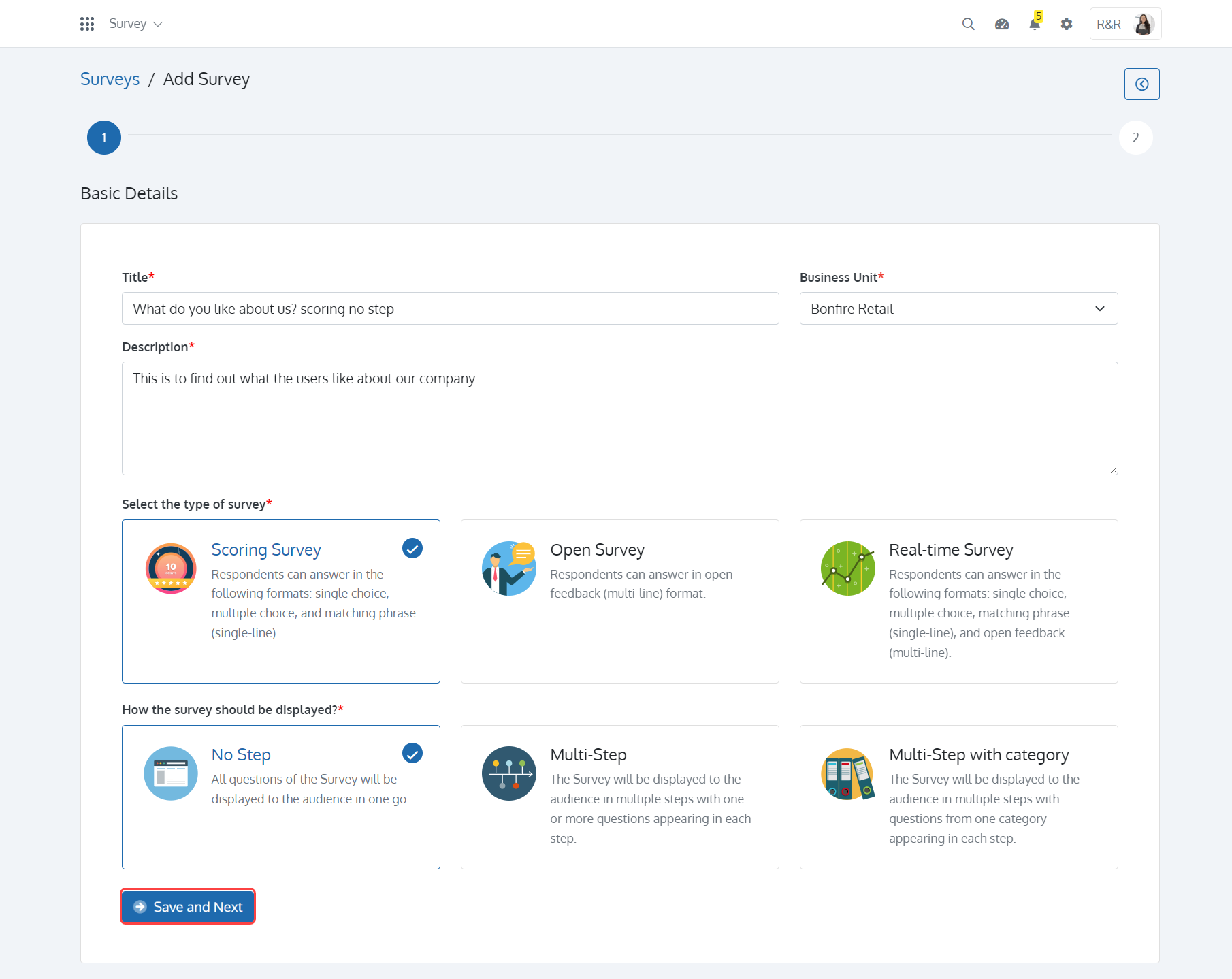
Select the ‘Type of Survey’ that will enable you to accomplish your goal once you have determined the purpose of your survey. With the Survey App of Batoi CloudSpace, you can select from three types of surveys: ‘Scoring Survey’, ‘Open Survey’ and ‘Real-time Survey’.
Scoring Survey: Respondents can answer in the following formats: single choice, multiple choice, and matching phrase (single-line).
Open Survey: Respondents can answer in open feedback (multi-line) format.
Real-Time Survey: Respondents can answer in the following formats: single choice, multiple choice, matching phrase (single-line), and open feedback (multi-line).
Now select the display type to let you determine ‘How the survey should be displayed?’ to your users. With the Survey app in Batoi CloudSpace, you can select among ‘No-Step’, ‘Multi-Step’ and ‘Multi-Step with Category’.
No Step: All questions of the Survey will be displayed to the audience in one go.
Multi-Step: The Survey will be displayed to the audience in multiple steps, with one or more questions appearing in each step.
Multi-Step with Category: The Survey will be displayed to the audience in multiple steps, with questions from one category appearing in each step.
A survey may involve organizational users, vendors and customers. With the Survey app in Batoi CloudSpace, you can associate Organizational Users, Vendors and Customers with your survey.
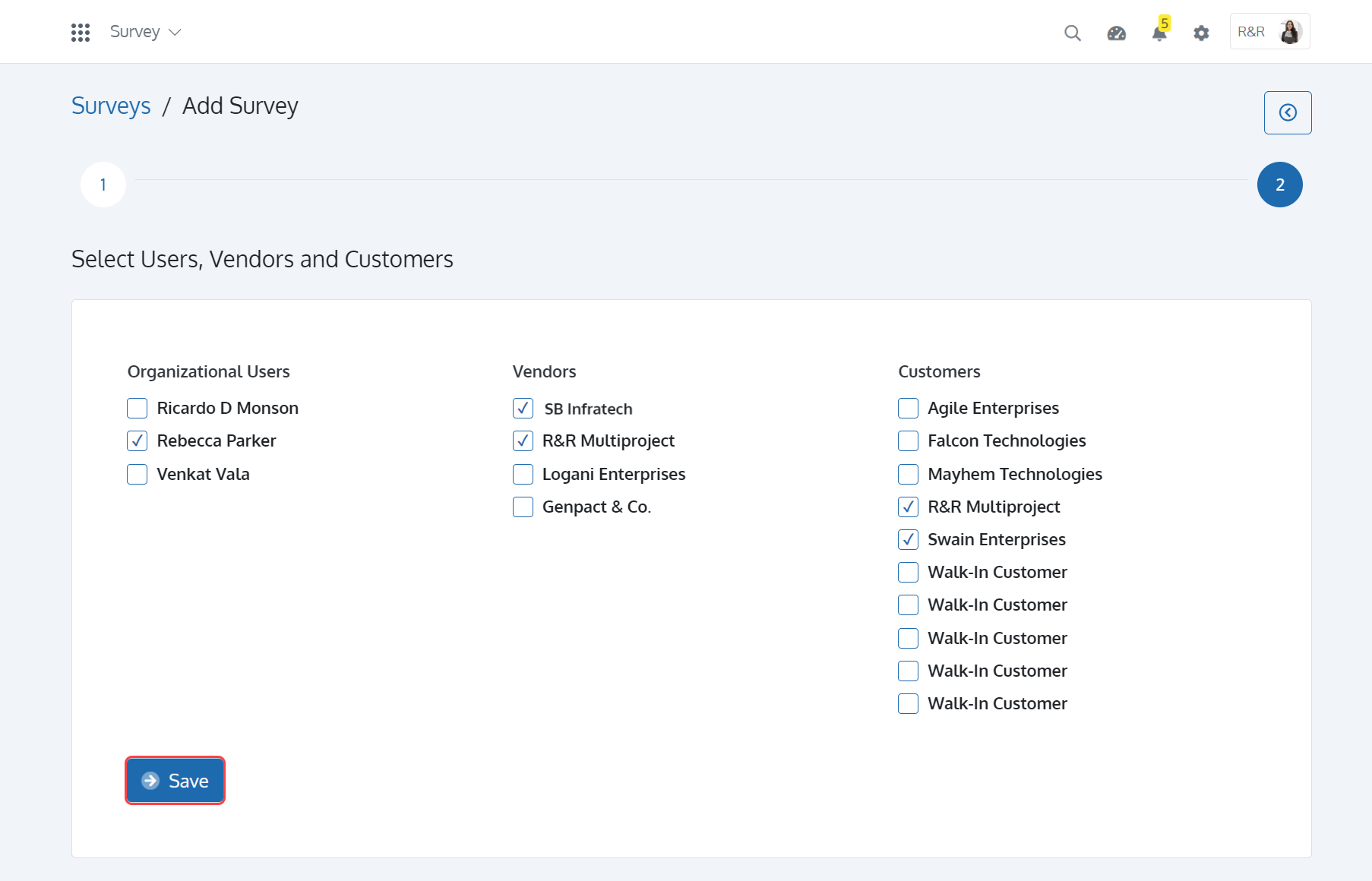
Developing survey questions that correctly reflect the audience attitudes, experiences, and actions is arguably the most crucial step in the process. It takes solid questions and a well-organized questionnaire to provide effective measurements. The process of designing a questionnaire may involve several stages. You may inquire about topics in-depth, and questions can be presented in different ways. Once you have added the survey, select it from the list of surveys. We will now discuss how the surveyor can create a questionnaire and how the surveyee views it for a few survey combinations:
Type: Scoring Survey Step Type: No Step
Categories can help produce more accurate insights and higher-quality data when included in surveys. ‘Add Category’ for this survey combination if required by entering the category ‘Title’ and ‘Description’.
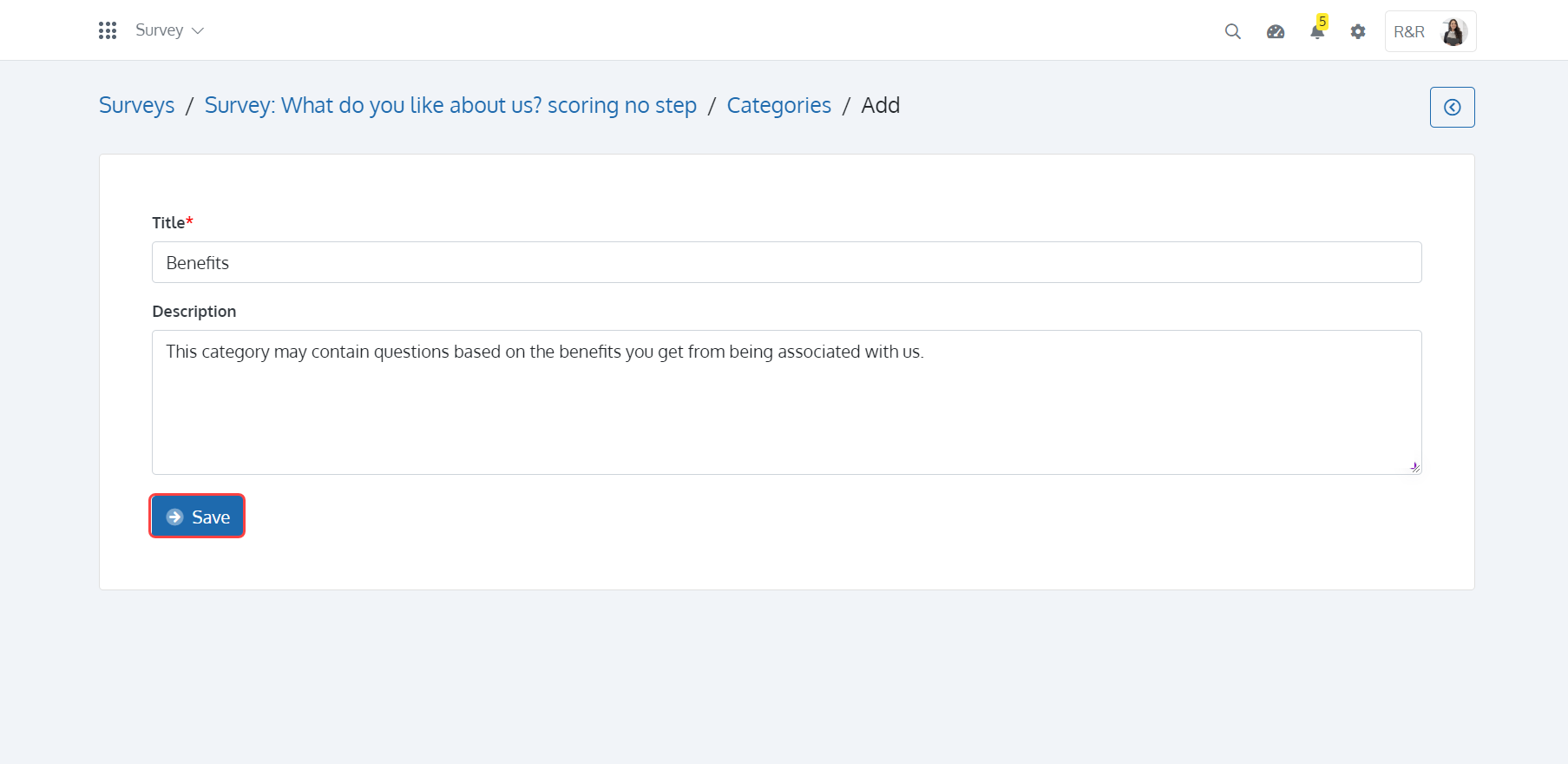
Questions must be specific and lead towards your goal. ‘Add Question’ for your Survey by entering the ‘Question’ followed by the ‘Category’ and selecting the ‘Response Type'.
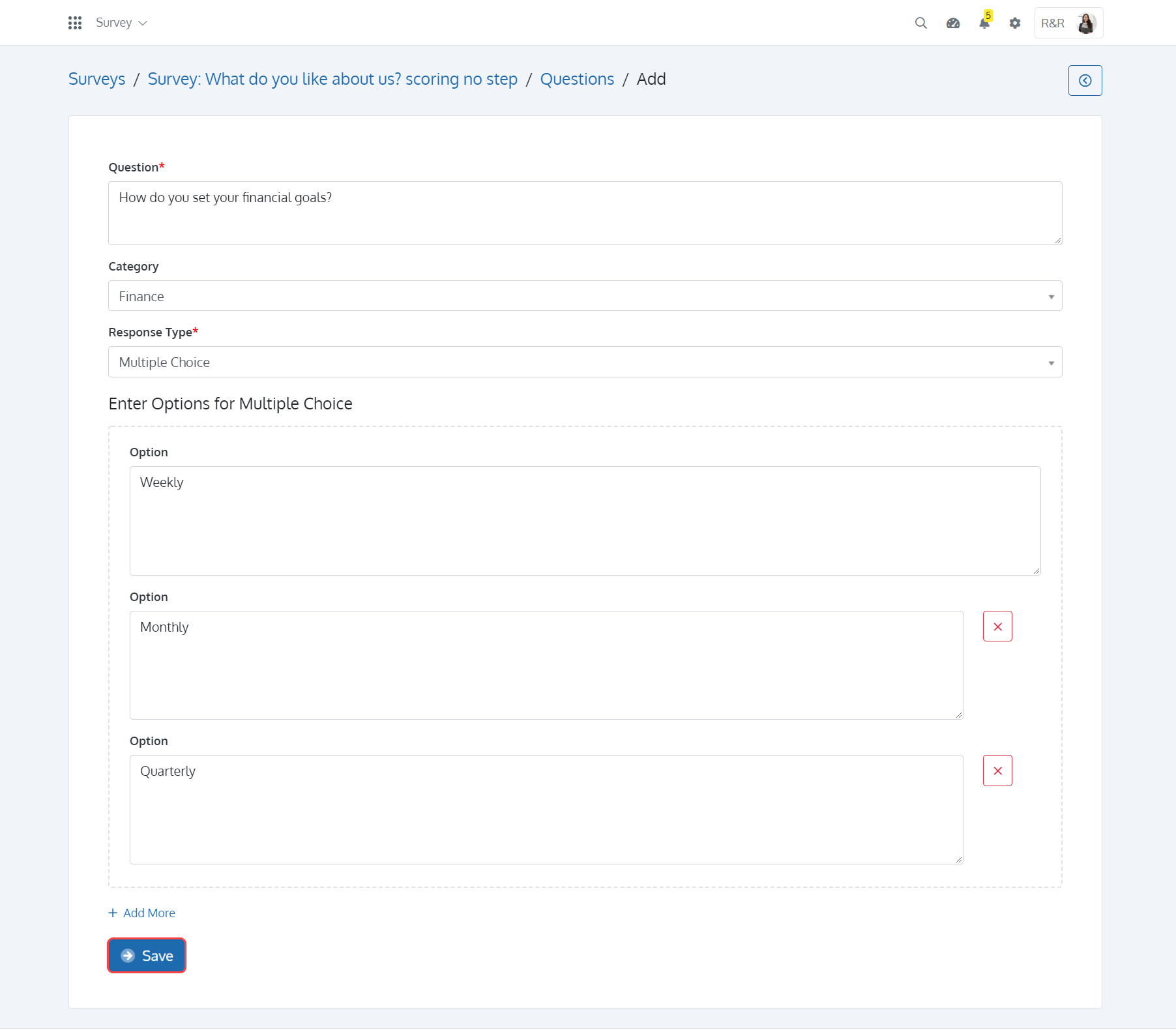
Surveyee View
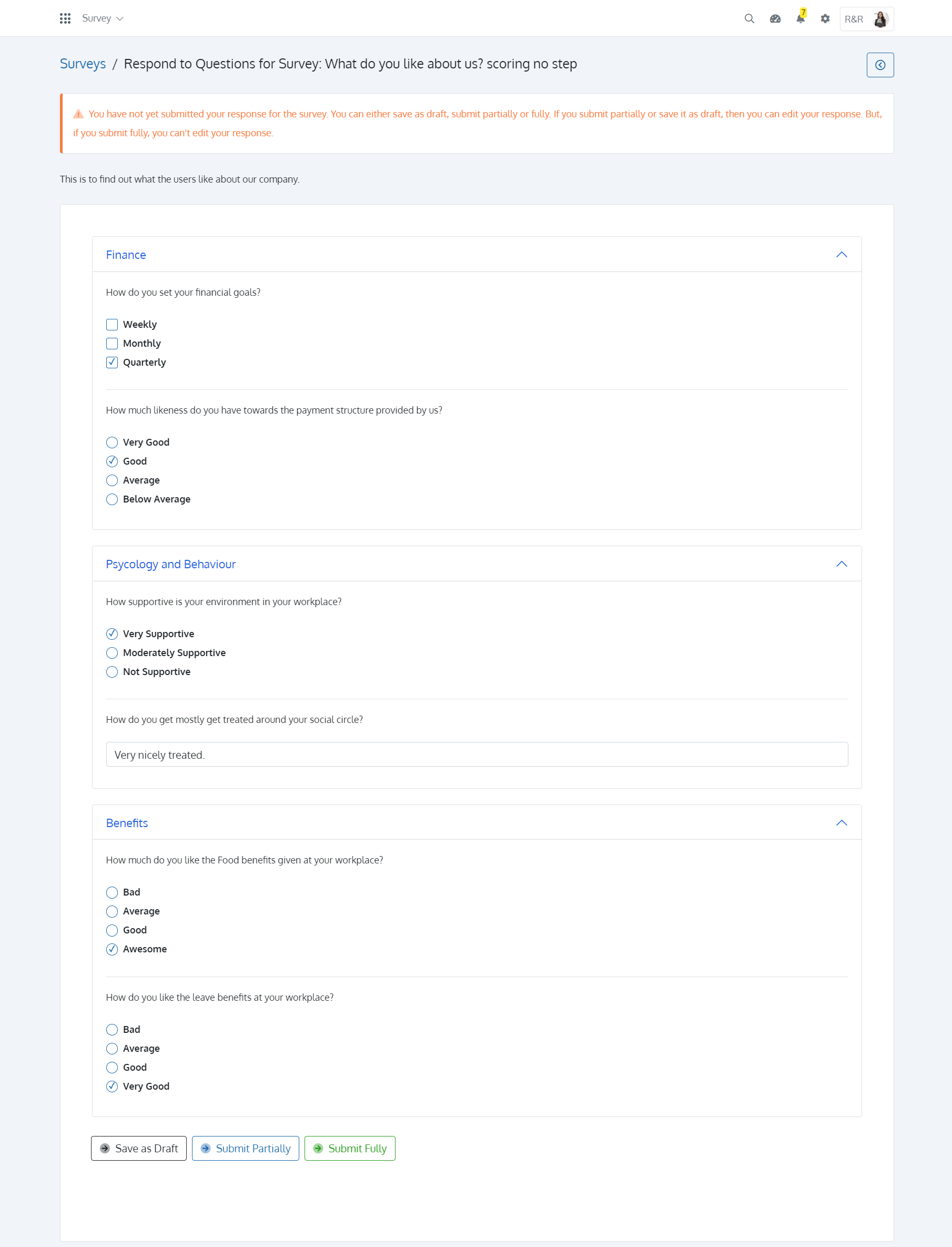
Type: Scoring Survey Step Type: Multi-Step
This survey combination contains no categories. You may directly ‘Add Questions’ to the survey by entering the ‘Question’, ‘Step’ number and ‘Response Type’. You can add one or more questions to each step.
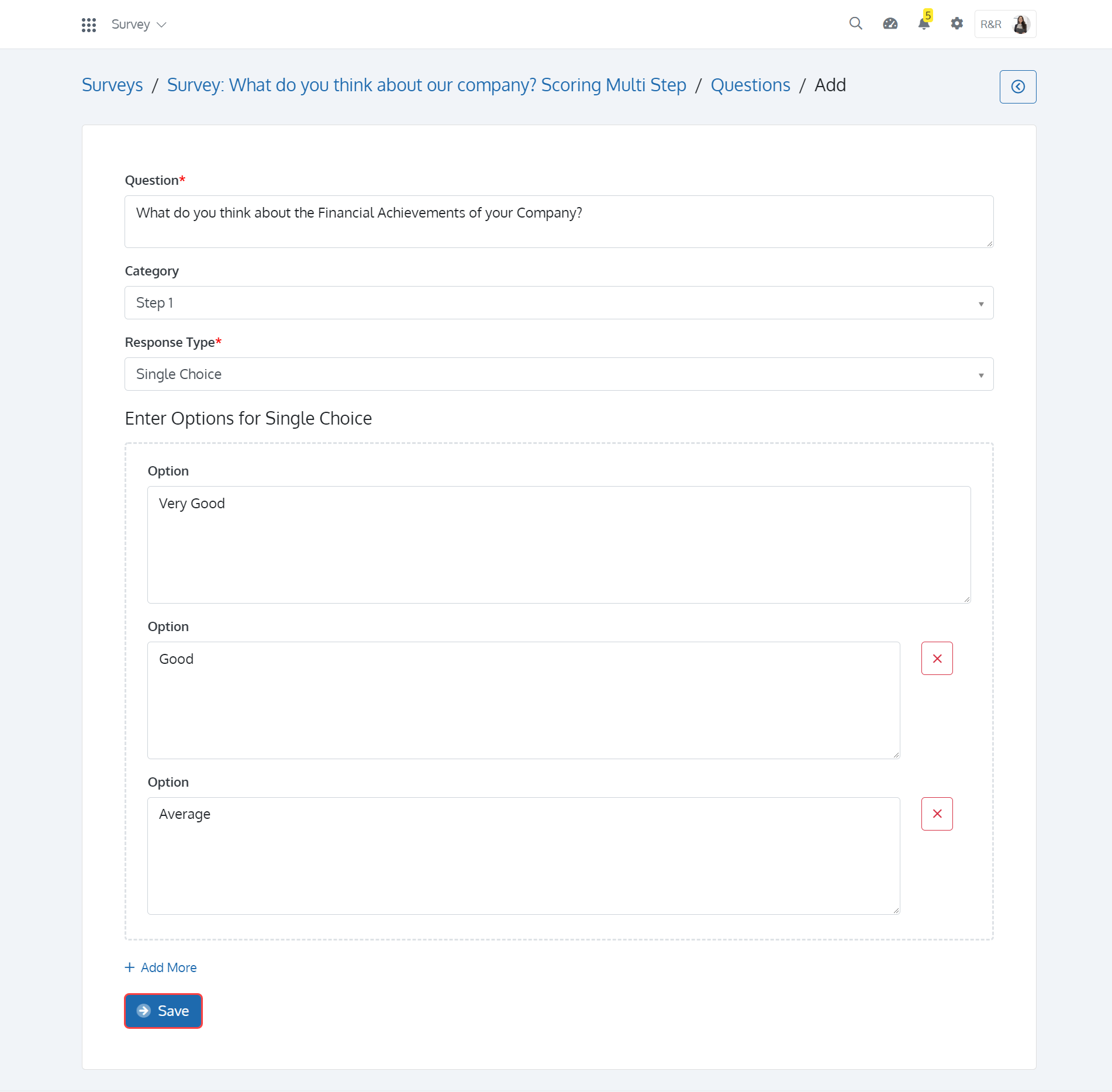
Surveyee View
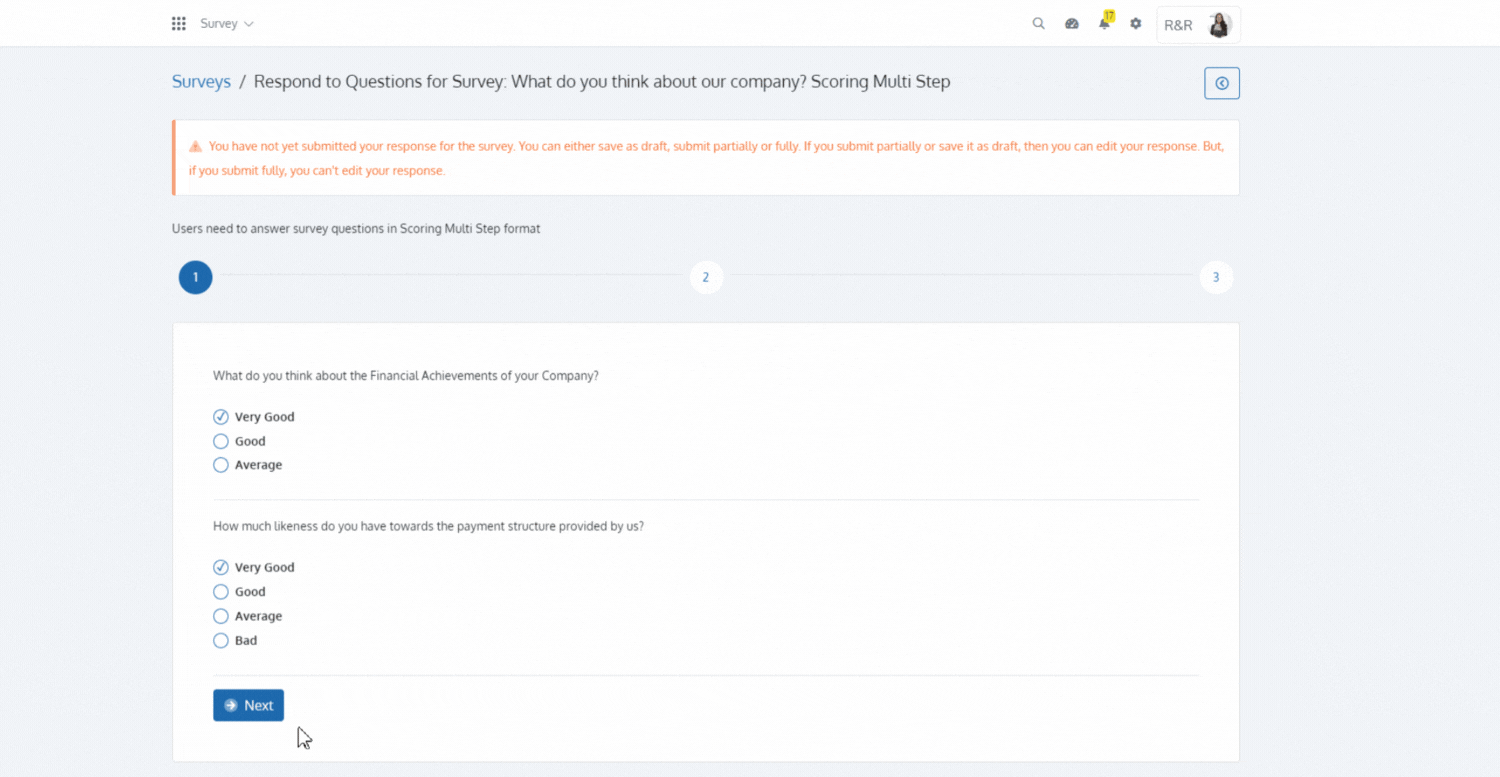
Type: Scoring Survey Step Type: Multi-Step with Category
Responses to questions can frequently be improved by using a combination of categories and steps. For example, Financial category questions can be completed in one step, while satisfaction-based questions can be completed in another step. You can ‘Add Category’ from the ‘Category’ Section by entering the ‘Title’ and ‘Description’.
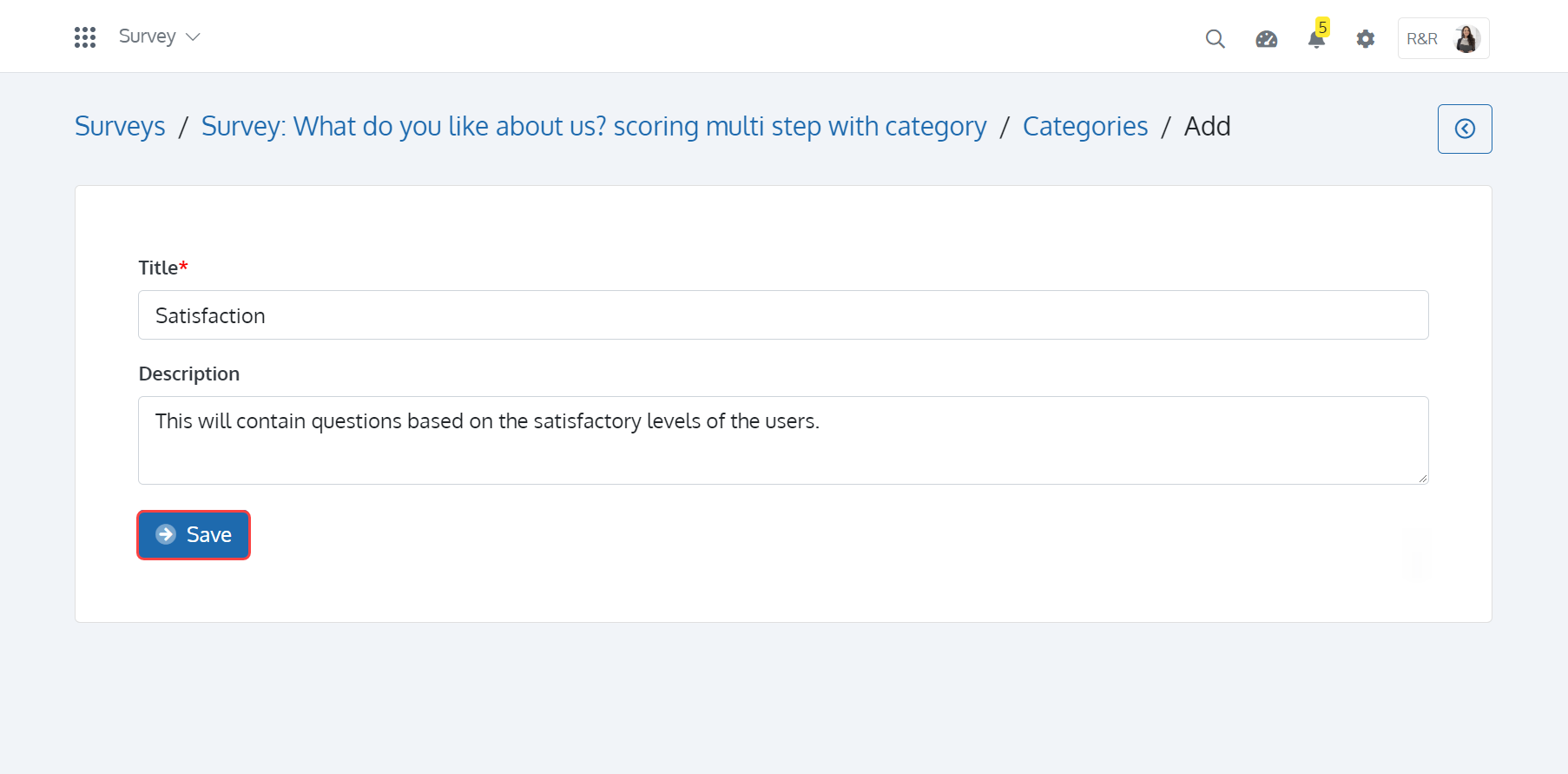
The question must be clear, specific, and explicit. Make sure the query is easy to comprehend. ‘Add Question’ for your survey by entering the ‘Question’ followed by the ‘Category’ and selecting the ‘Response Type’.
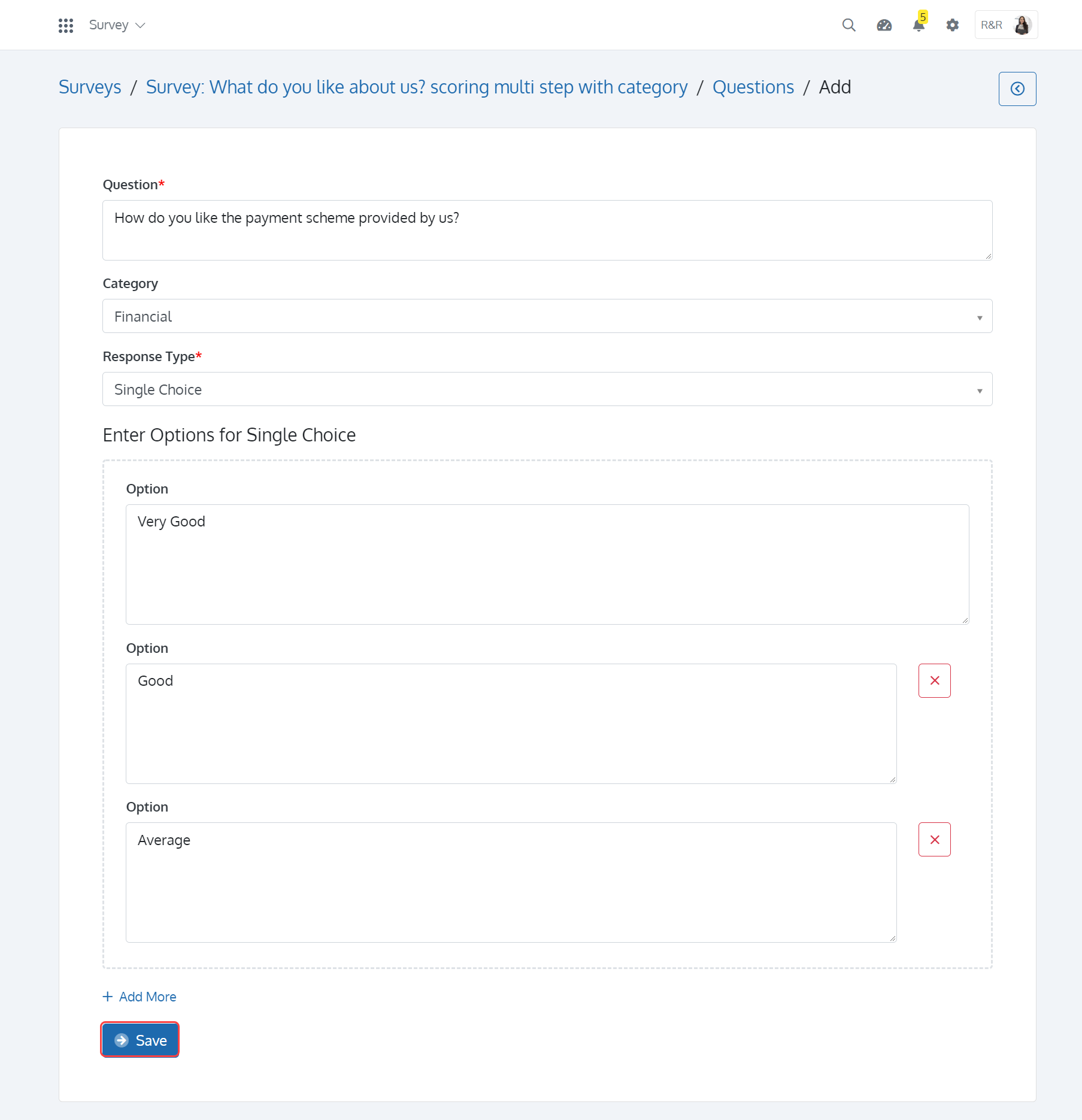
Surveyee View
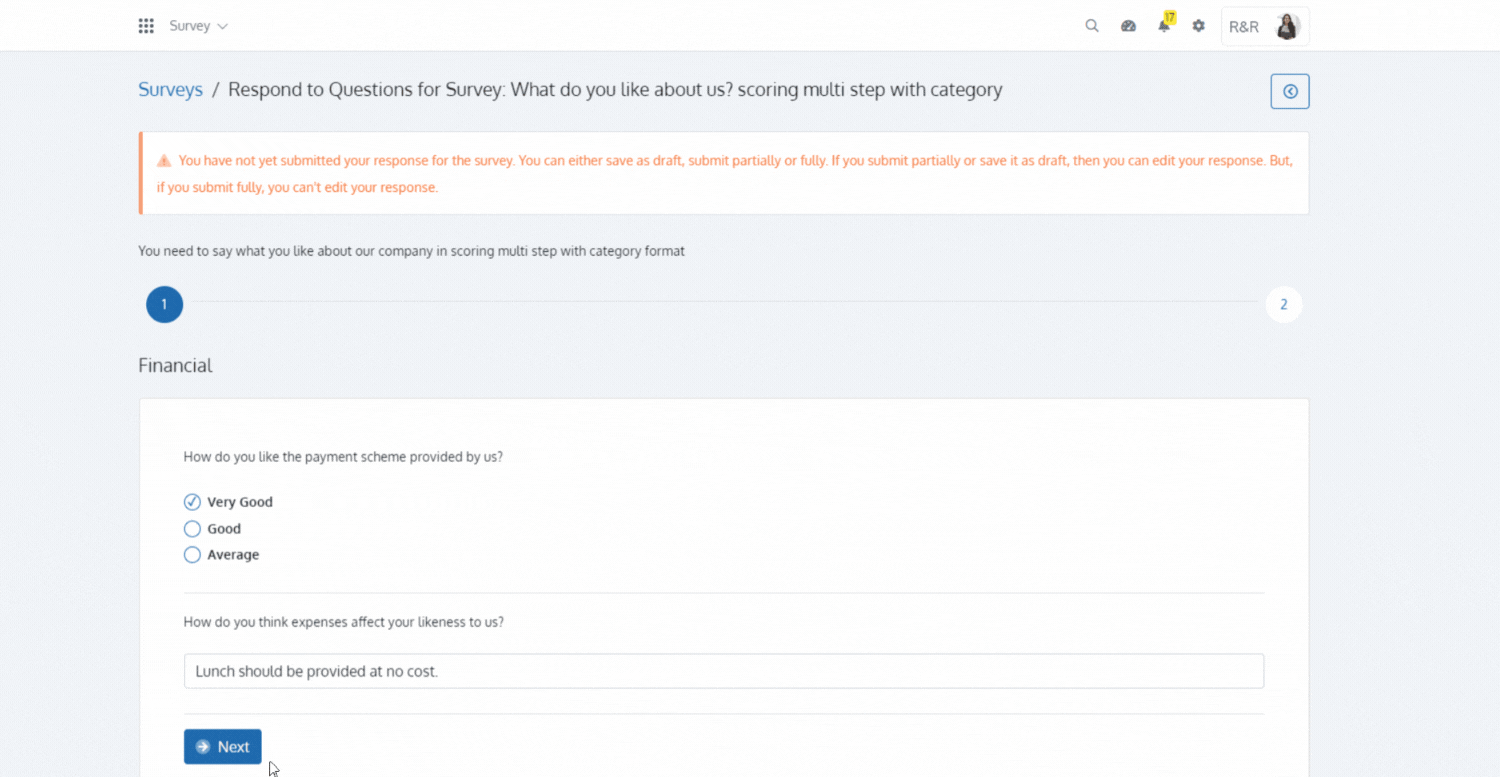
Type: Open Survey Step Type: No Step
Categories can help produce more accurate insights and higher-quality data when included in surveys. ‘Add Category’ for this survey combination if required by entering the category ‘Title’ and ‘Description’.
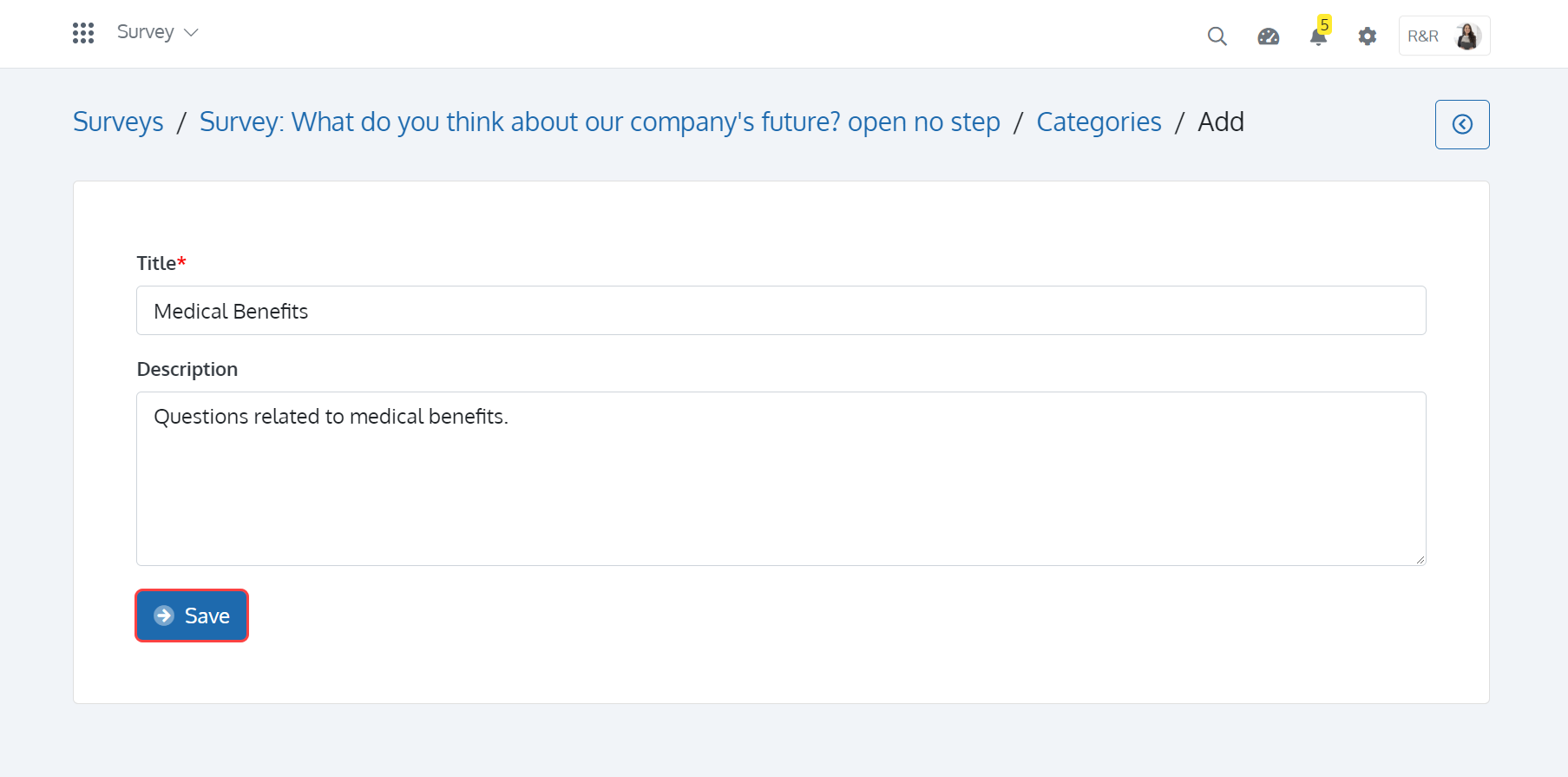
Questions must be specific and lead towards your goal. ‘Add Question’ for your survey by entering the ‘Question’ followed by the ‘Category’. The response type is automatically set to ‘Open Feedback’ and cannot be changed.
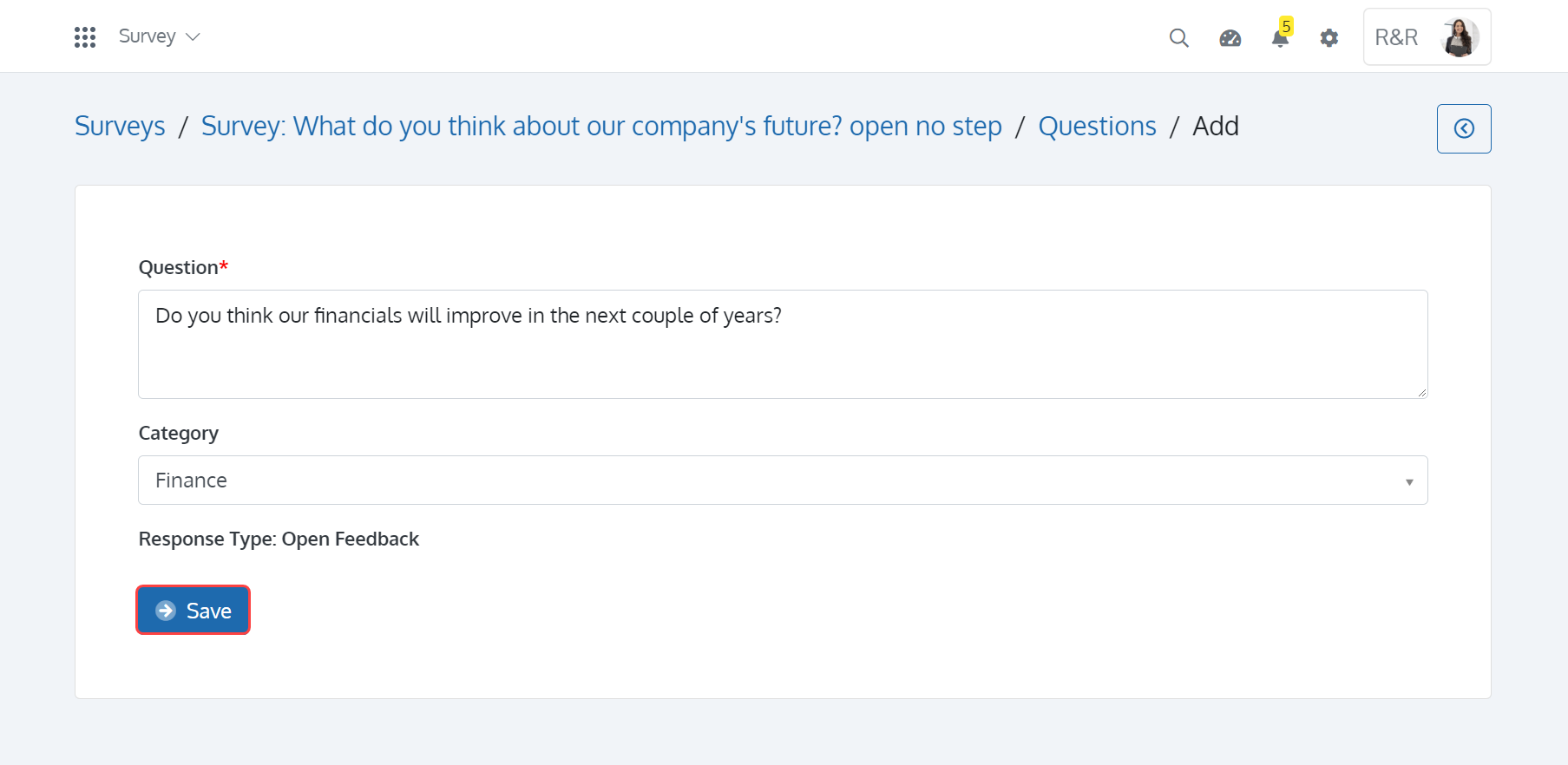
Surveyee View
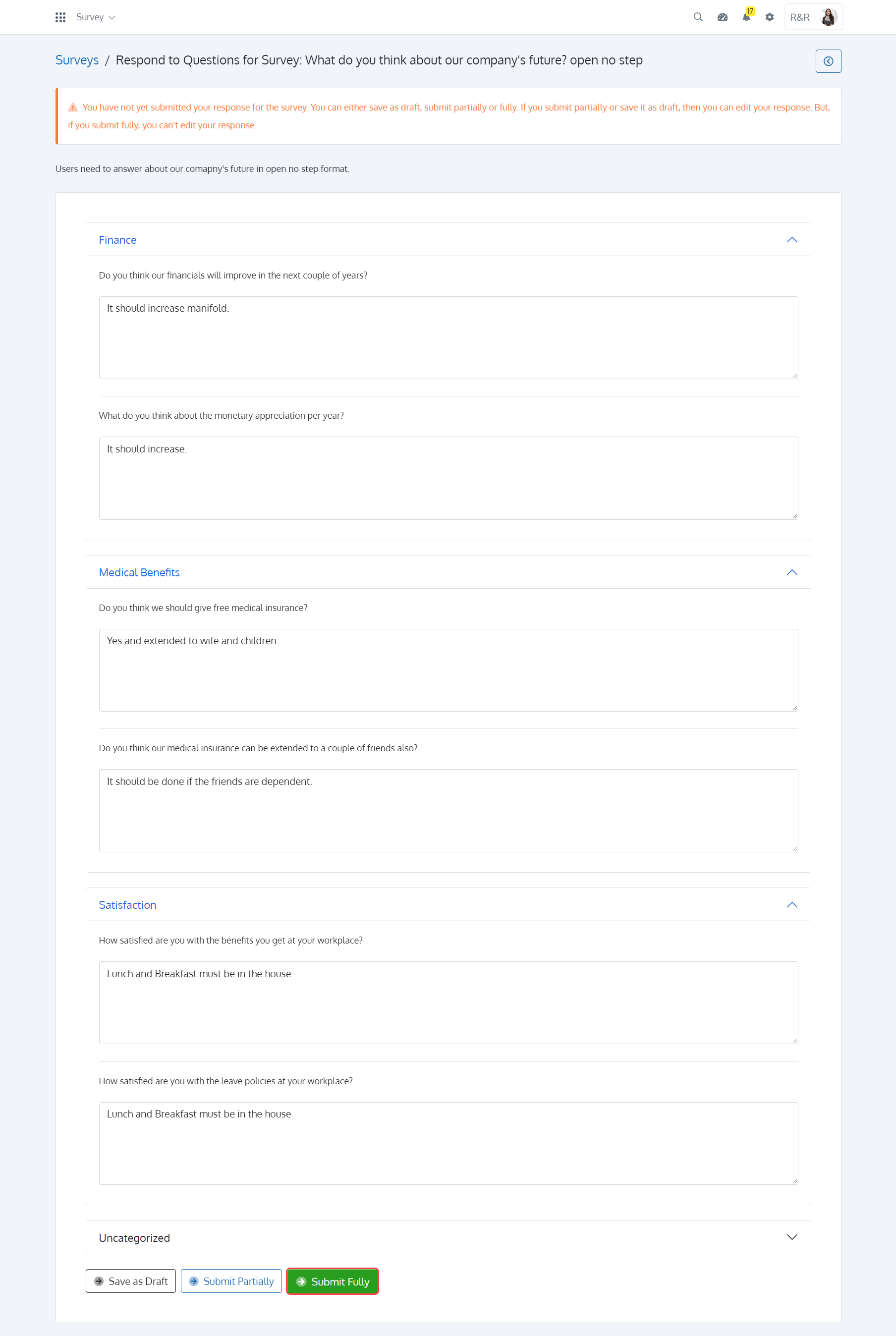
Type: Open Survey Step Type: Multi-Step
This survey combination contains no categories. You may directly ‘Add Questions’ to the survey by entering the ‘Question’ and ‘Step’ number. You can add one or more questions to each Step. The response type is automatically set to open feedback and cannot be changed.
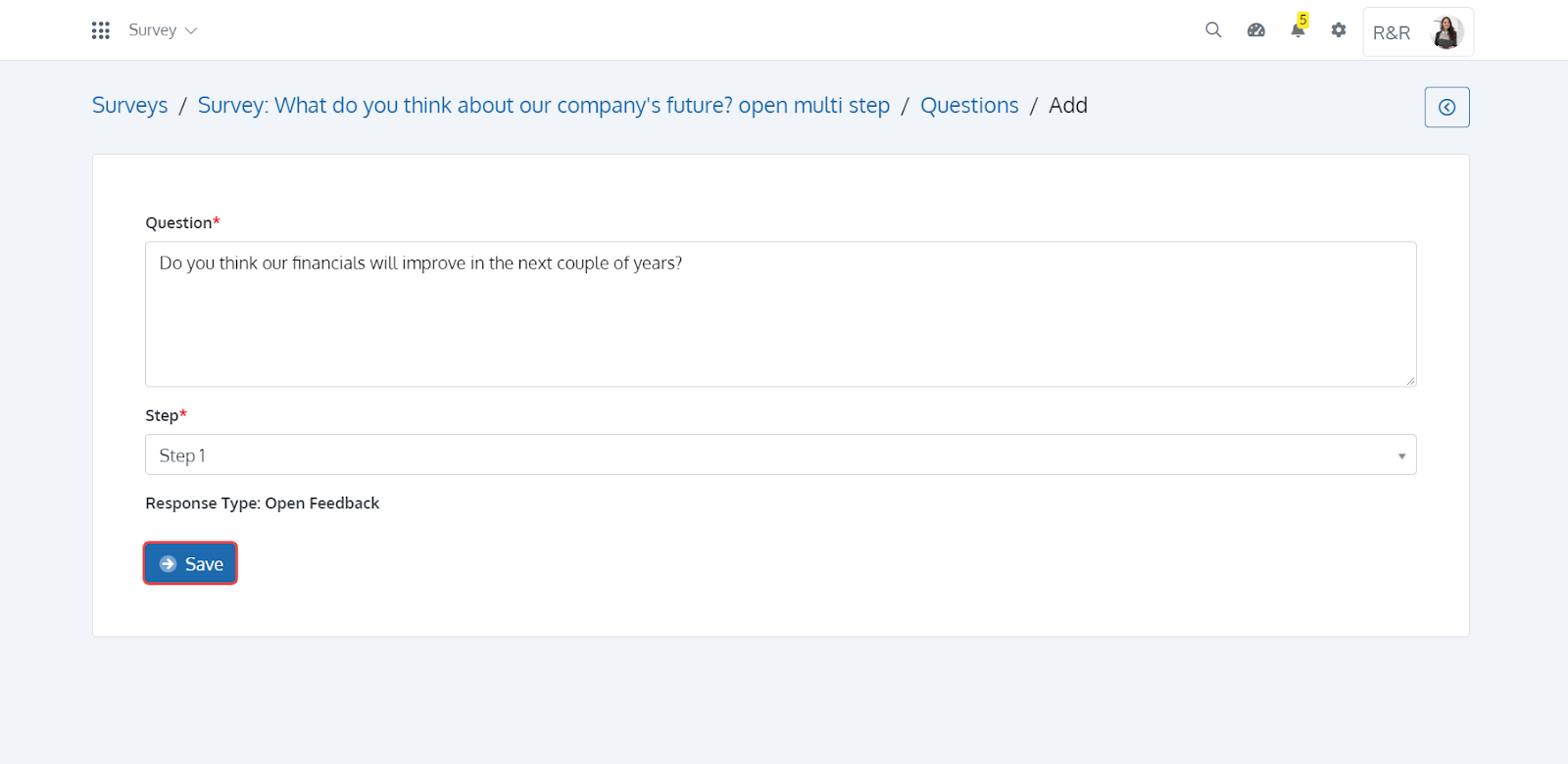
Surveyee View
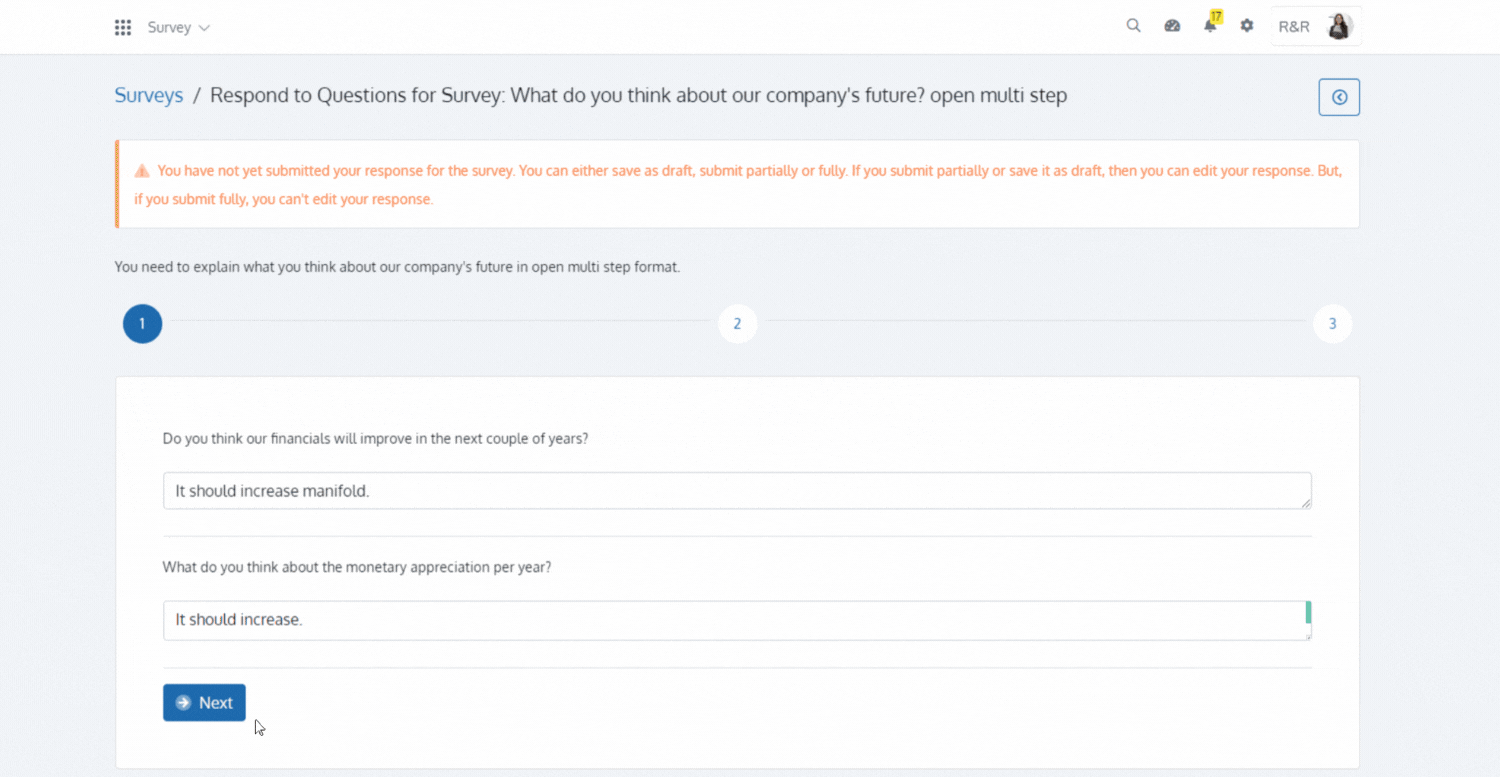
Type: Open Survey Step Type: Multi-Step with Category
Responses to questions can frequently be improved by using a combination of categories and steps. For example, Financial category questions can be completed in one step, while Satisfaction-based questions can be completed in another step. You can ‘Add Category’ from the ‘Category’ Section by entering the ‘Title’ and ‘Description’.
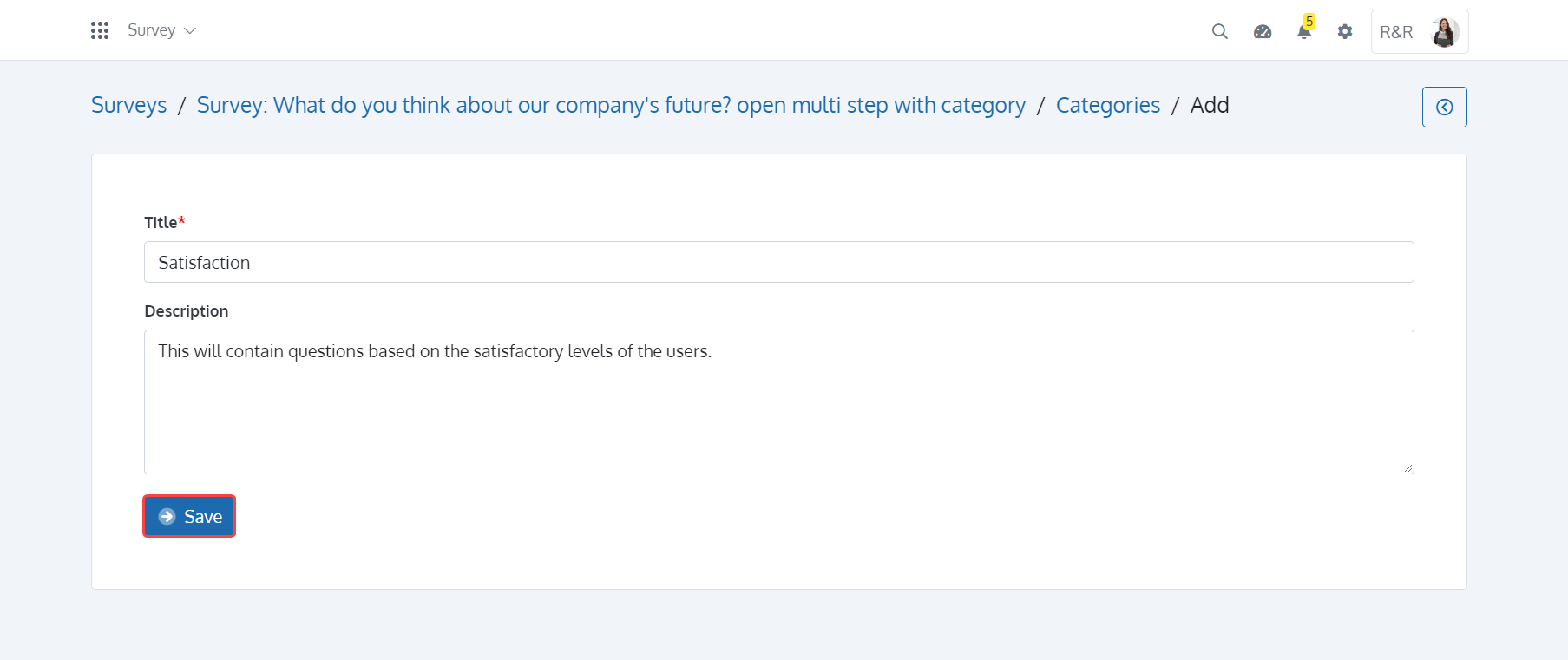
Questions must be specific and lead towards your goal. ‘Add Question’ for your survey by entering the ‘Question’ followed by the ‘Category’. The response type is automatically set to ‘Open Feedback’ and cannot be changed.
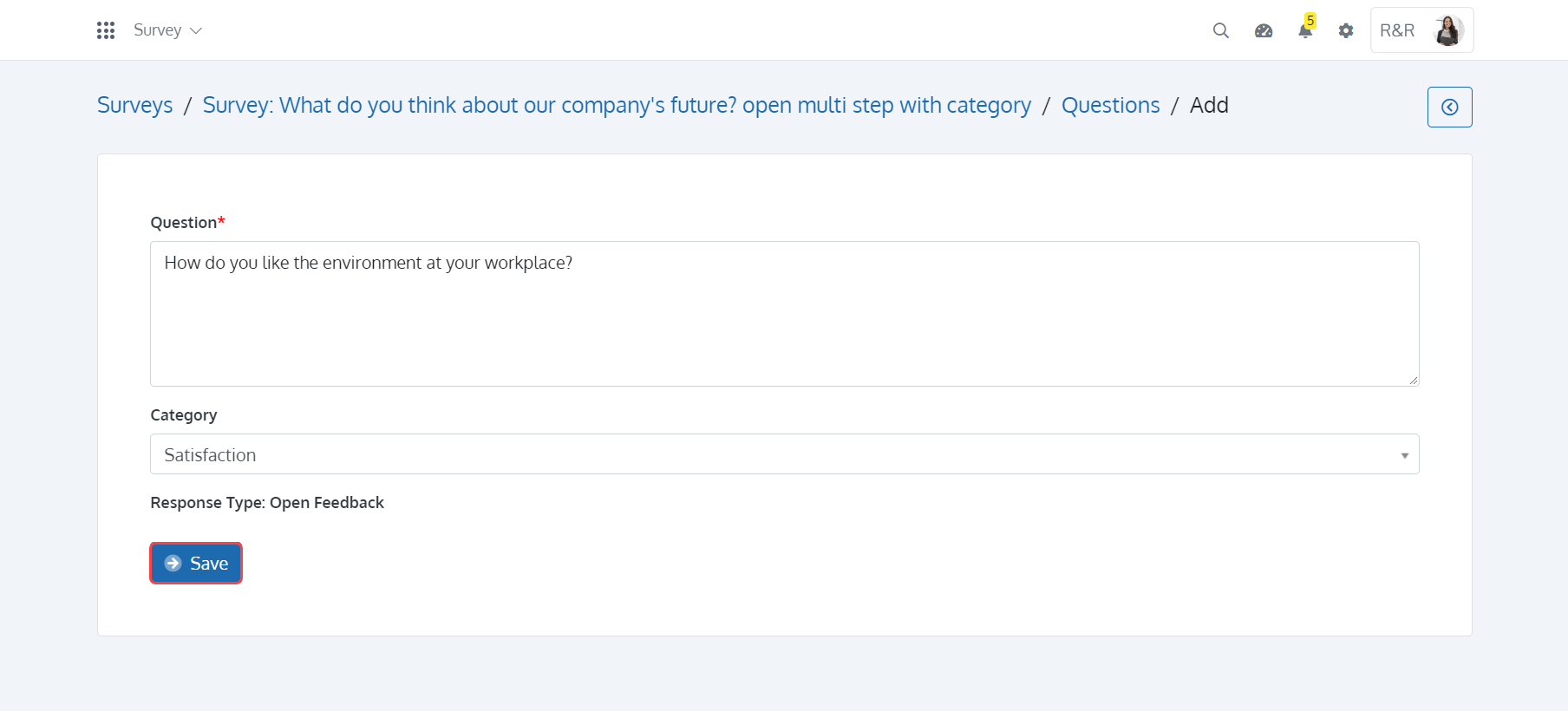
Surveyee View
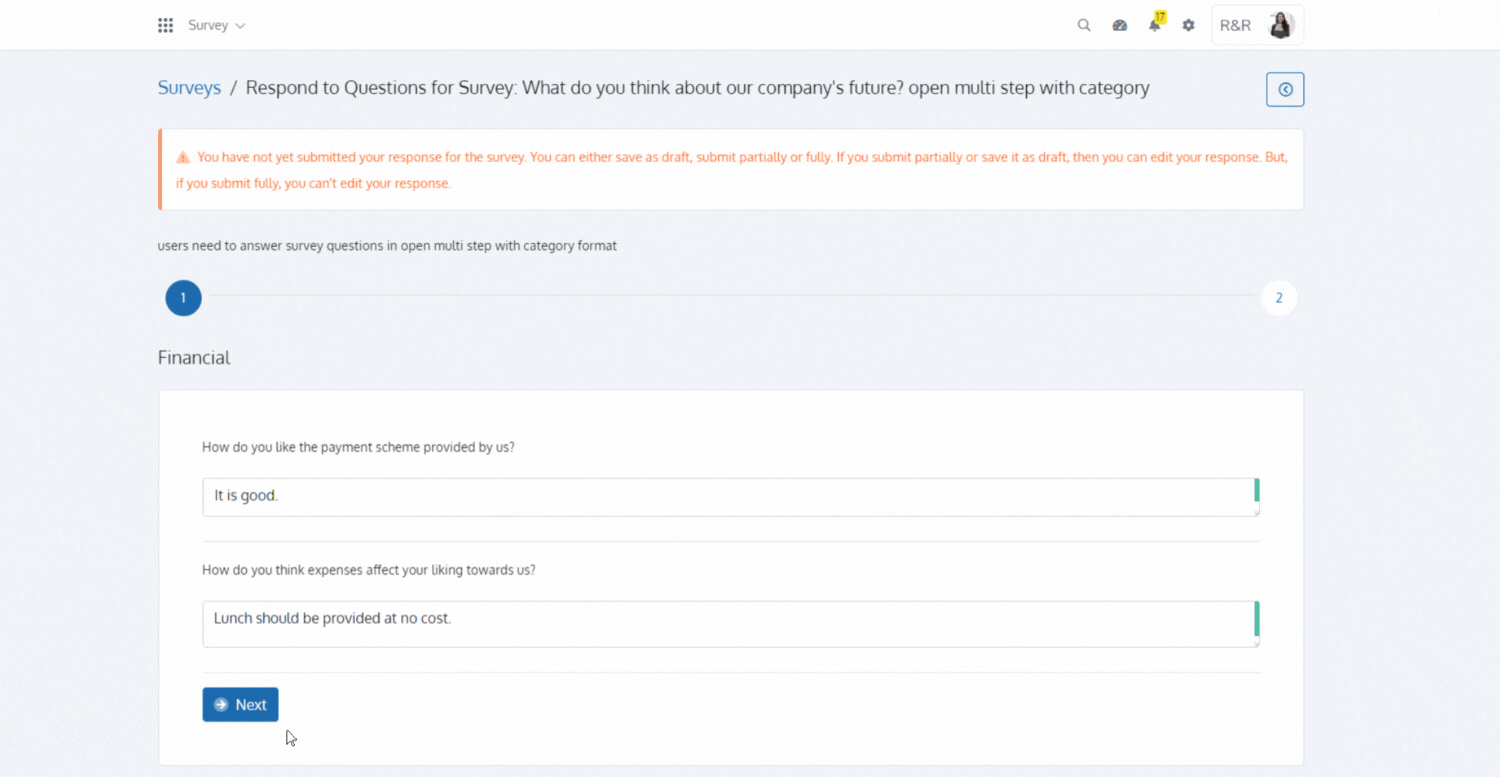
Type: Real Time Survey Step Type: No Step
Categories can help produce more accurate insights and higher-quality data when included in surveys. ‘Add Category’ for this survey combination if required by entering the category ‘Title’ and ‘Description’.
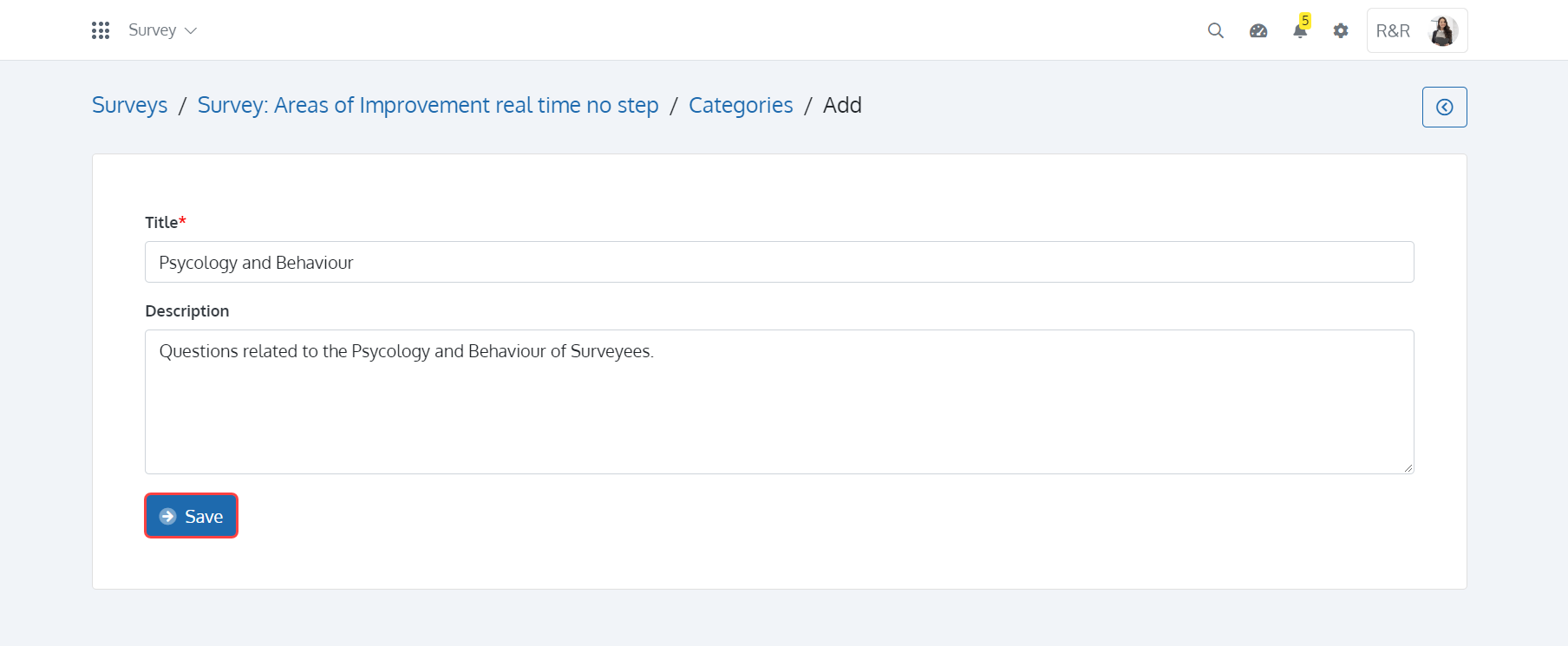
Questions must be specific and lead towards your goal. ‘Add Question’ for your survey by entering the ‘Question’ followed by the ‘Category’ and selecting the ‘Response Type’.
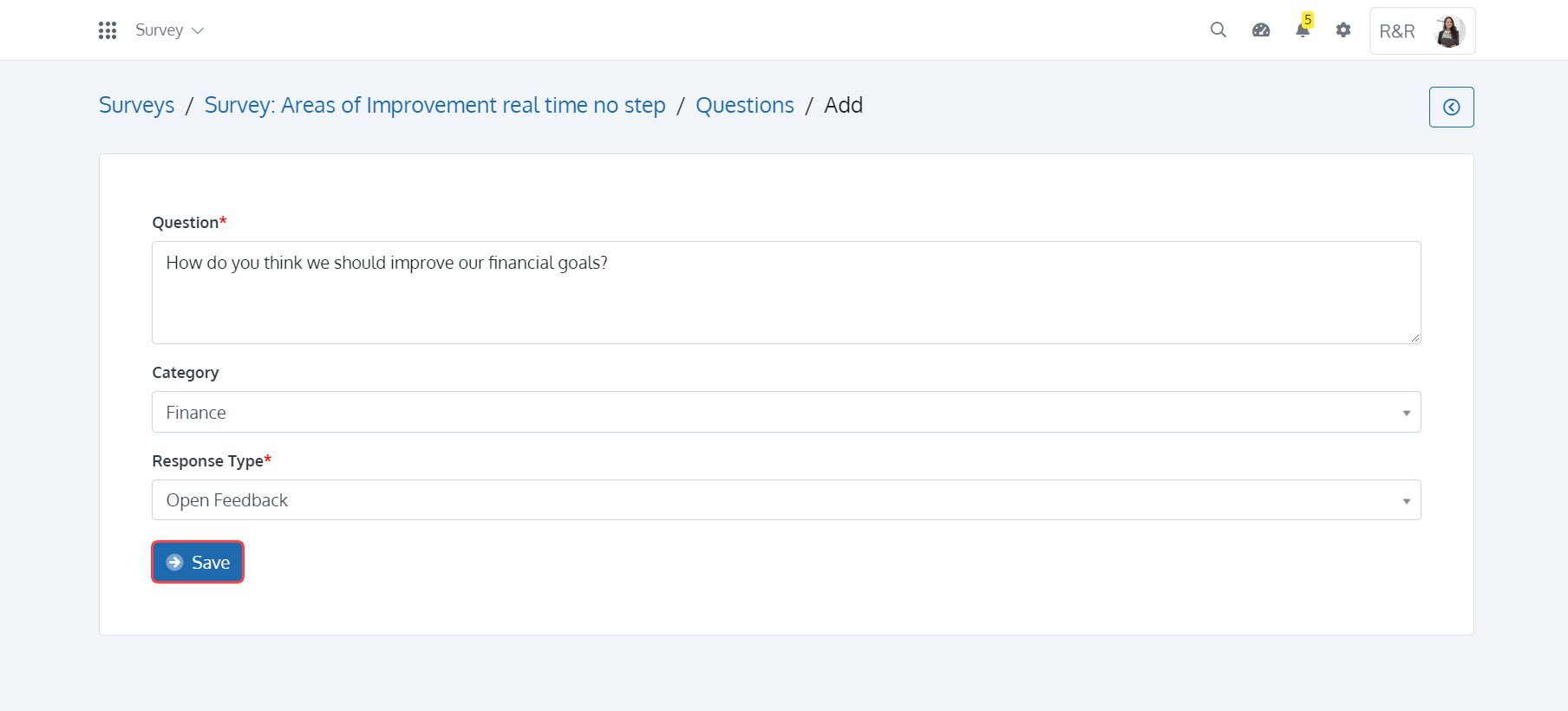
Surveyee View
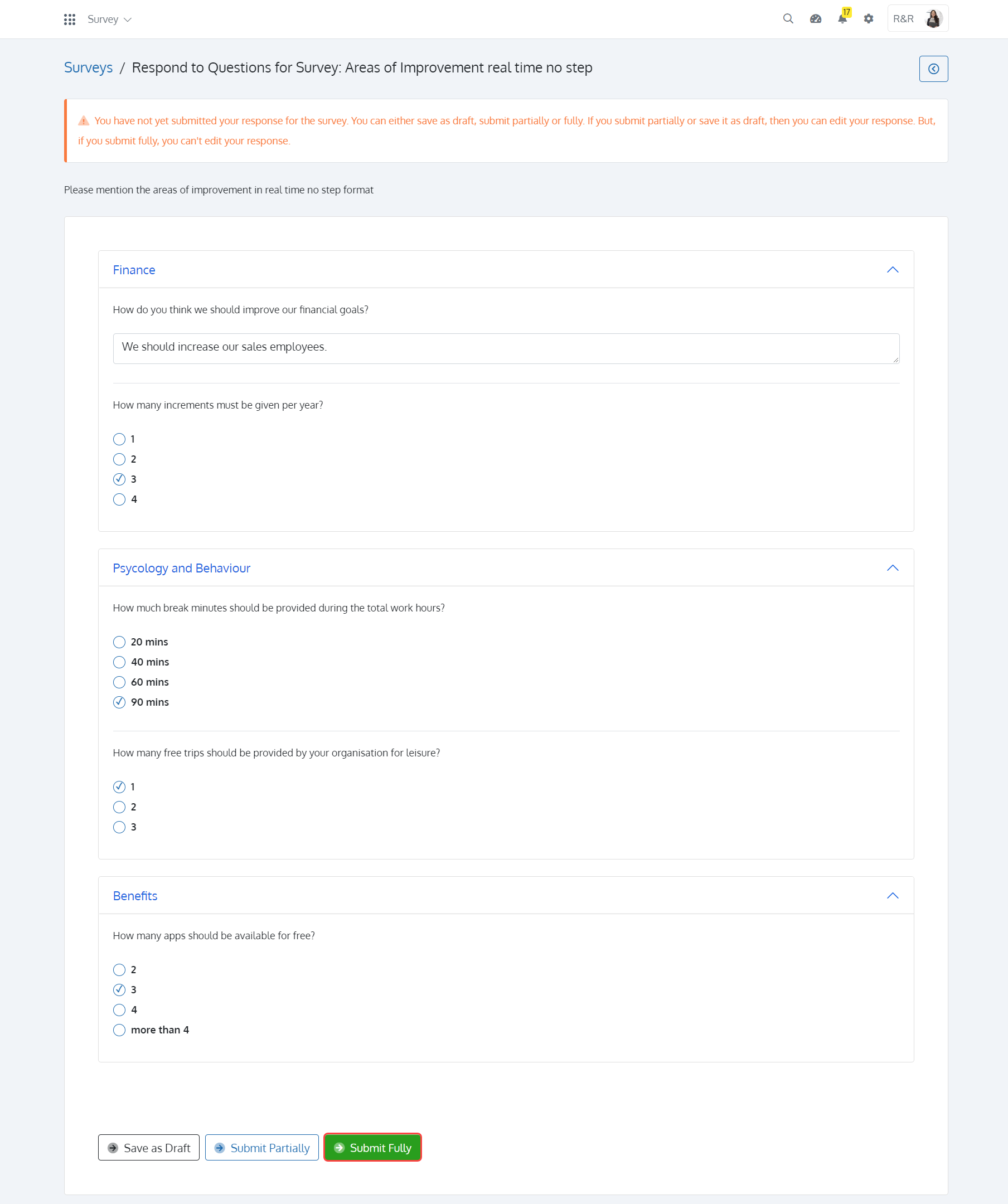
Type: Real Time Survey Step Type: Multi-Step
This survey combination contains no categories. You may directly ‘Add Questions’ to the survey by entering the ‘Question’, ‘Step’ number and ‘Response Type’. You can add one or more questions to each Step.
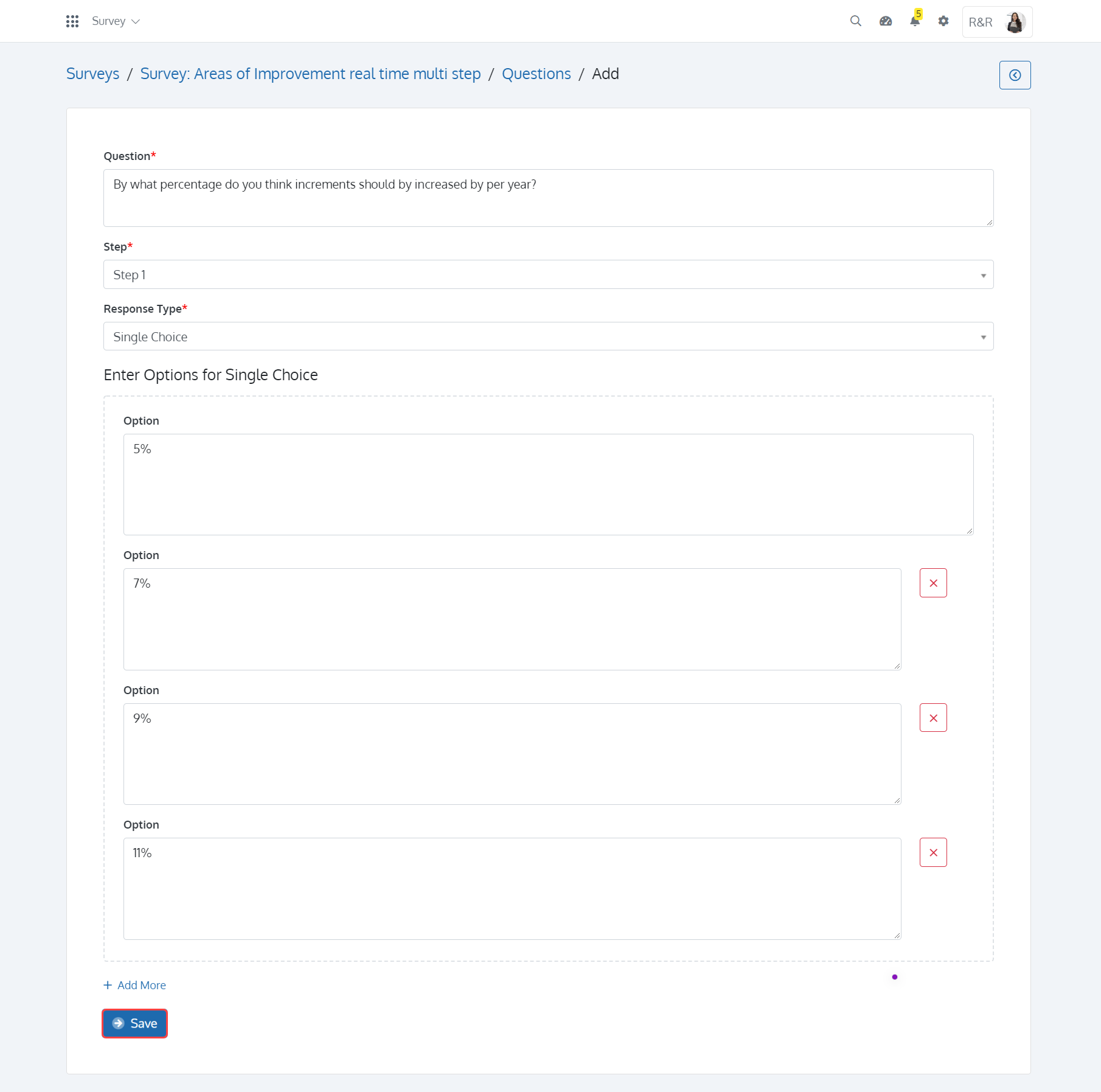
Surveyee View
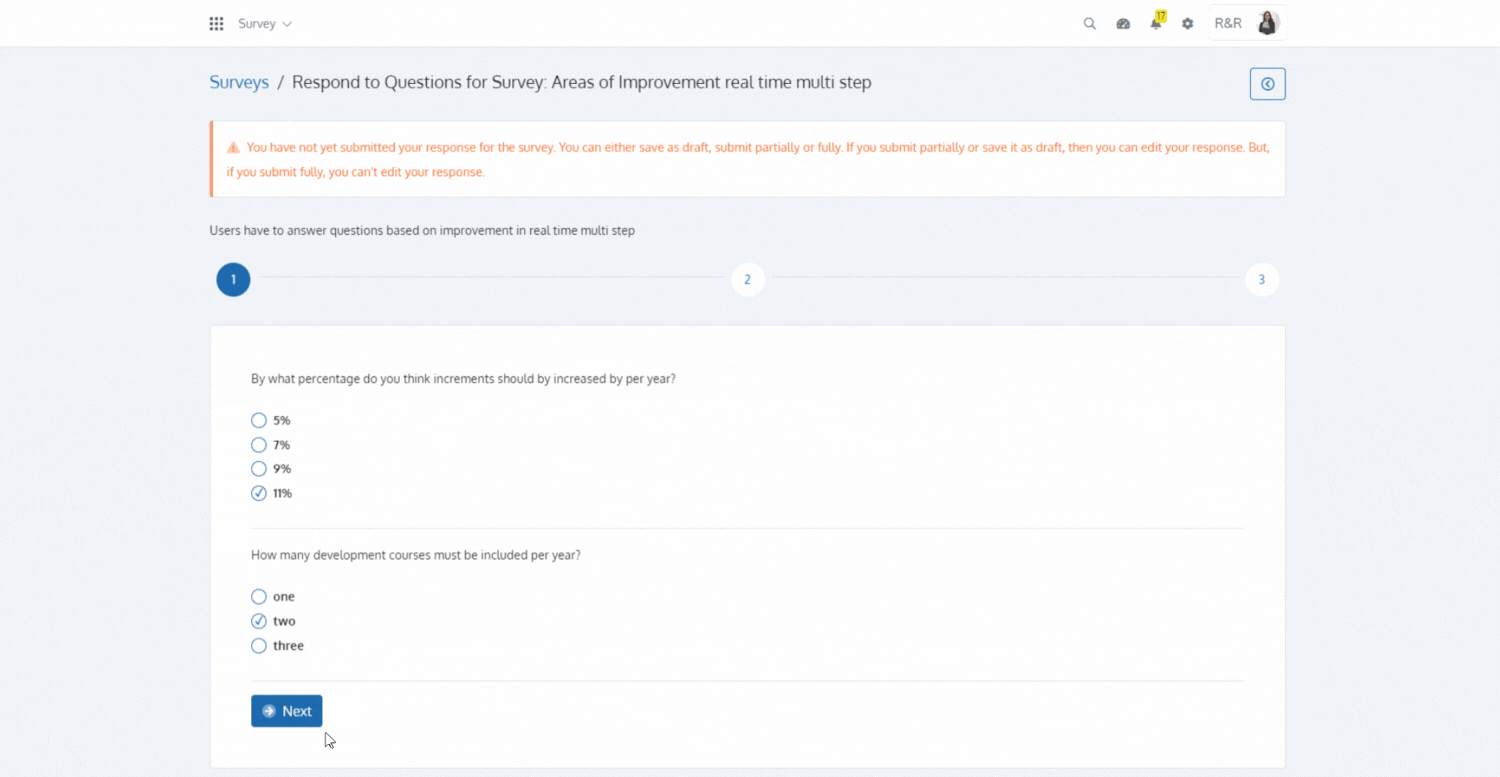
Type: Real Time Survey Step Type: Multi-Step with Category
Responses to questions can frequently be improved by using a combination of categories and steps. For example, Financial category questions can be completed in one step, while Satisfaction-based questions can be completed in another step. You can ‘Add Category’ from the ‘Category’ section by entering the ‘Title’ and ‘Description’.
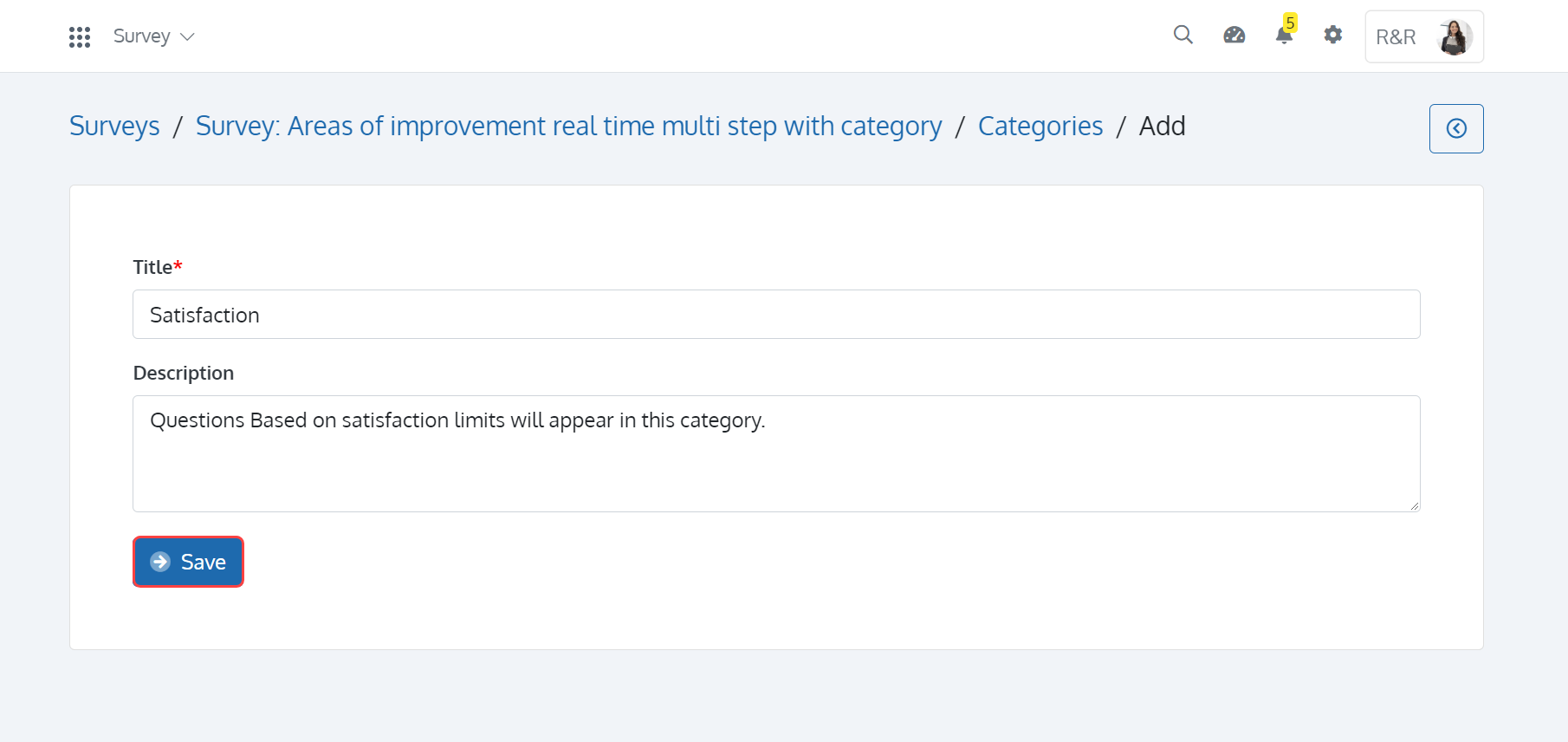
The question must be clear, specific, and explicit. Make sure the query is easy to comprehend. ‘Add Question’ for your survey by entering the ‘Question’ followed by the ‘Category’ and selecting the ‘Response Type’.
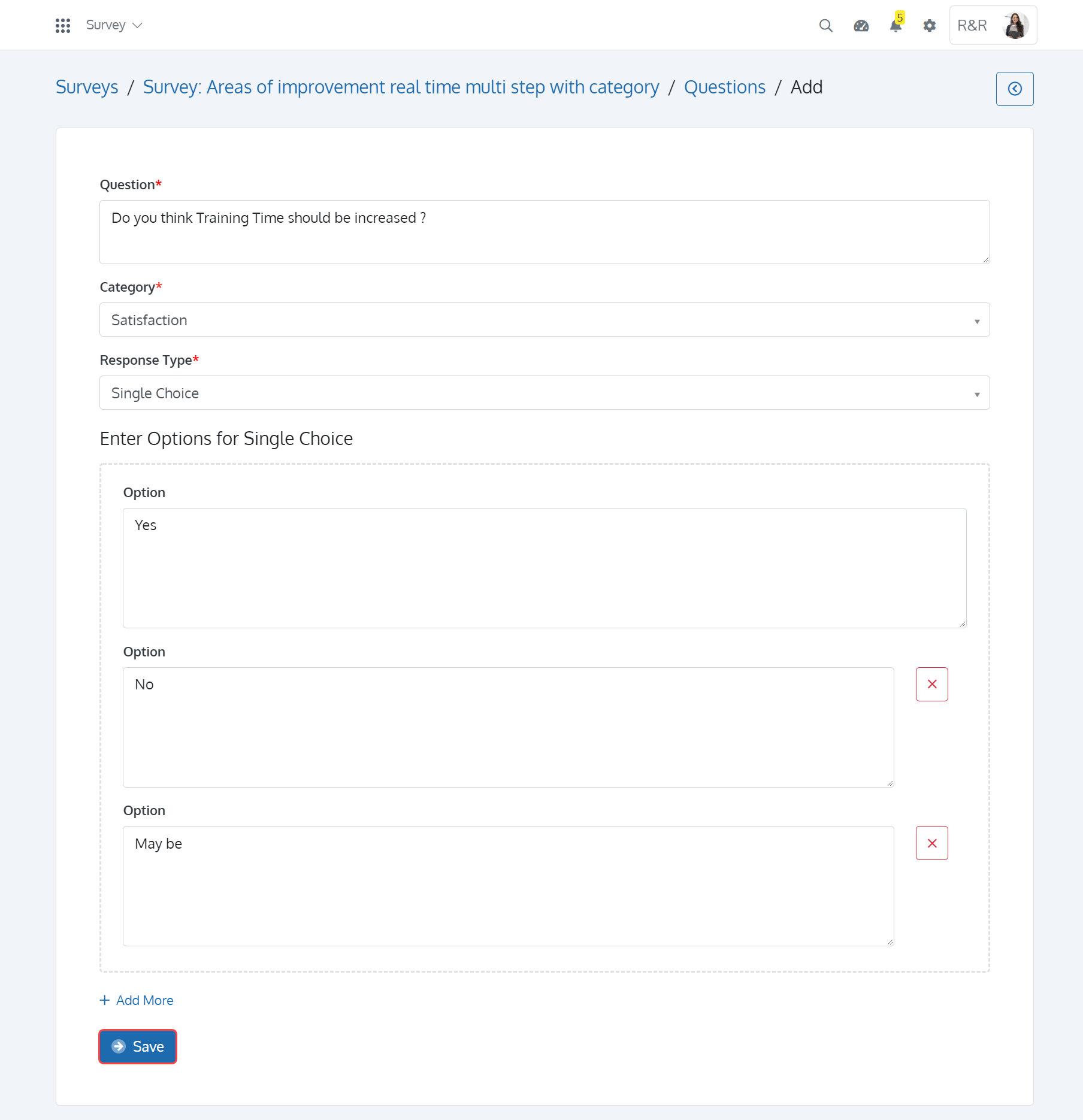
Surveyee View
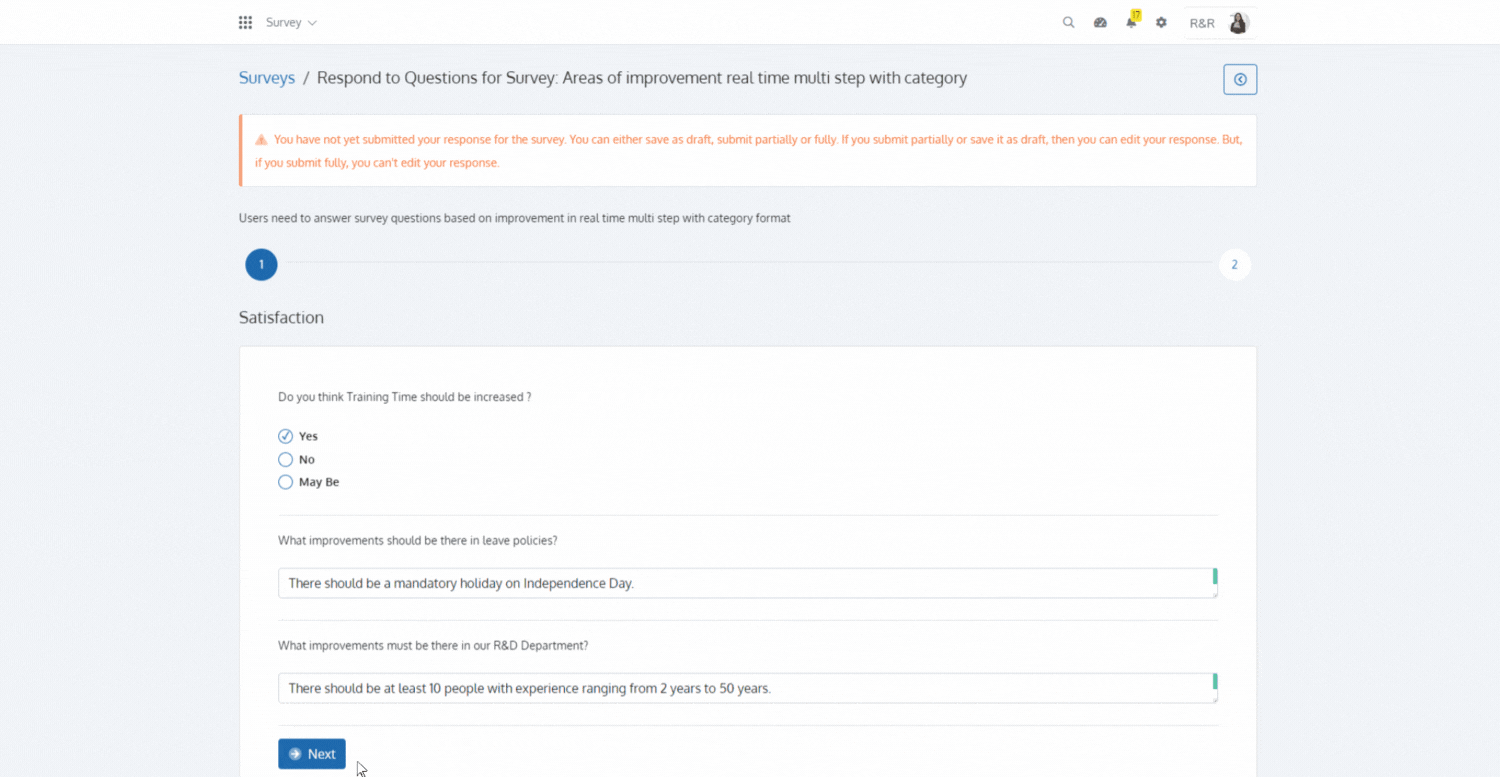
Once the Survey is prepared, ‘Mark as Ready’ and ‘Send to Users’. You can send the survey to Customers, Vendors and Organizational Users.
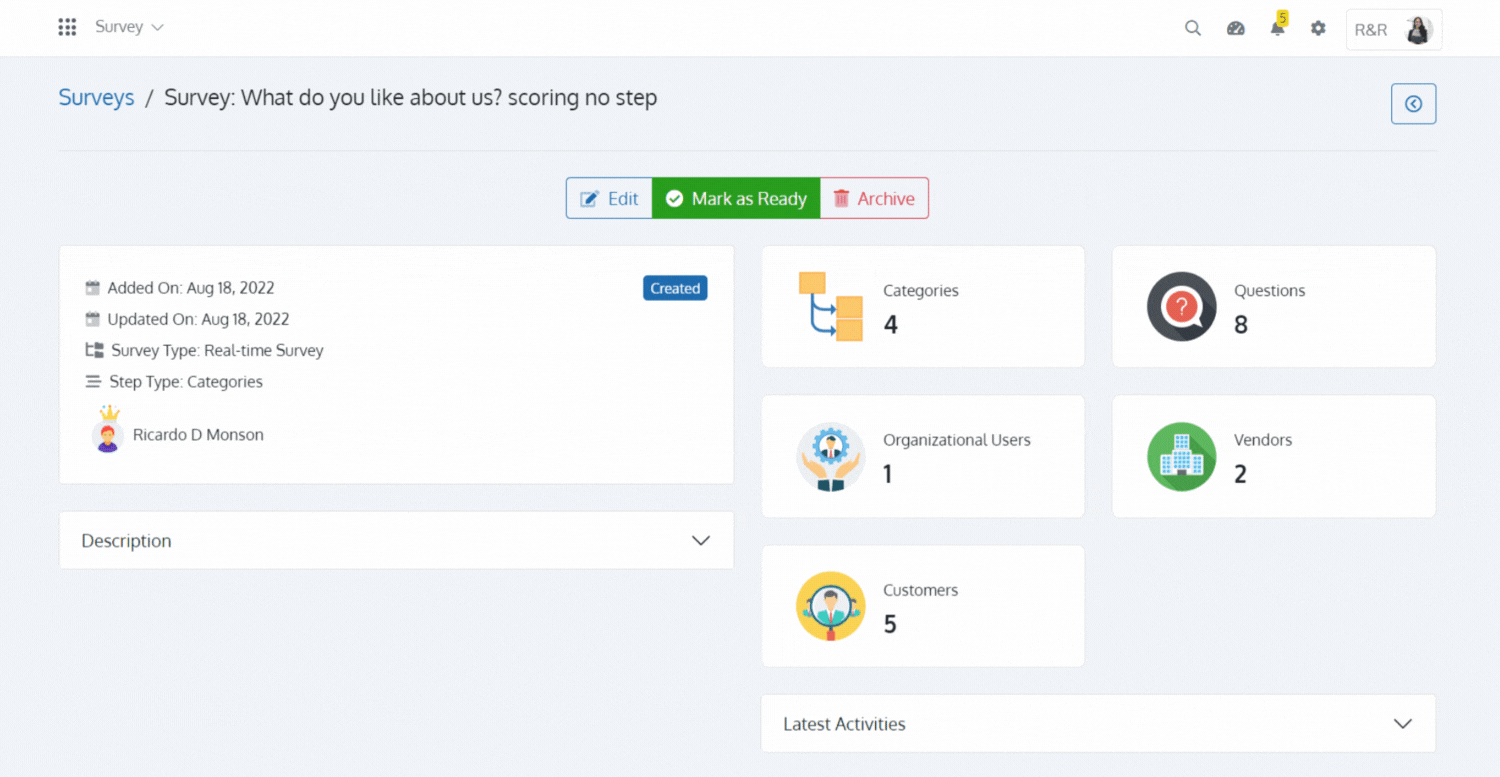
Users will get a notification once the survey is sent. Users can choose to take the survey. They may then ‘Submit Partially’ or ‘Submit Fully’ as they wish. Once submitted fully, they will not be able to make any changes to their responses. Once you have all surveyees' submissions, you can view the reports and identify the ‘Choice Most Preferred by Users’ along with the survey answers pertaining to every user.
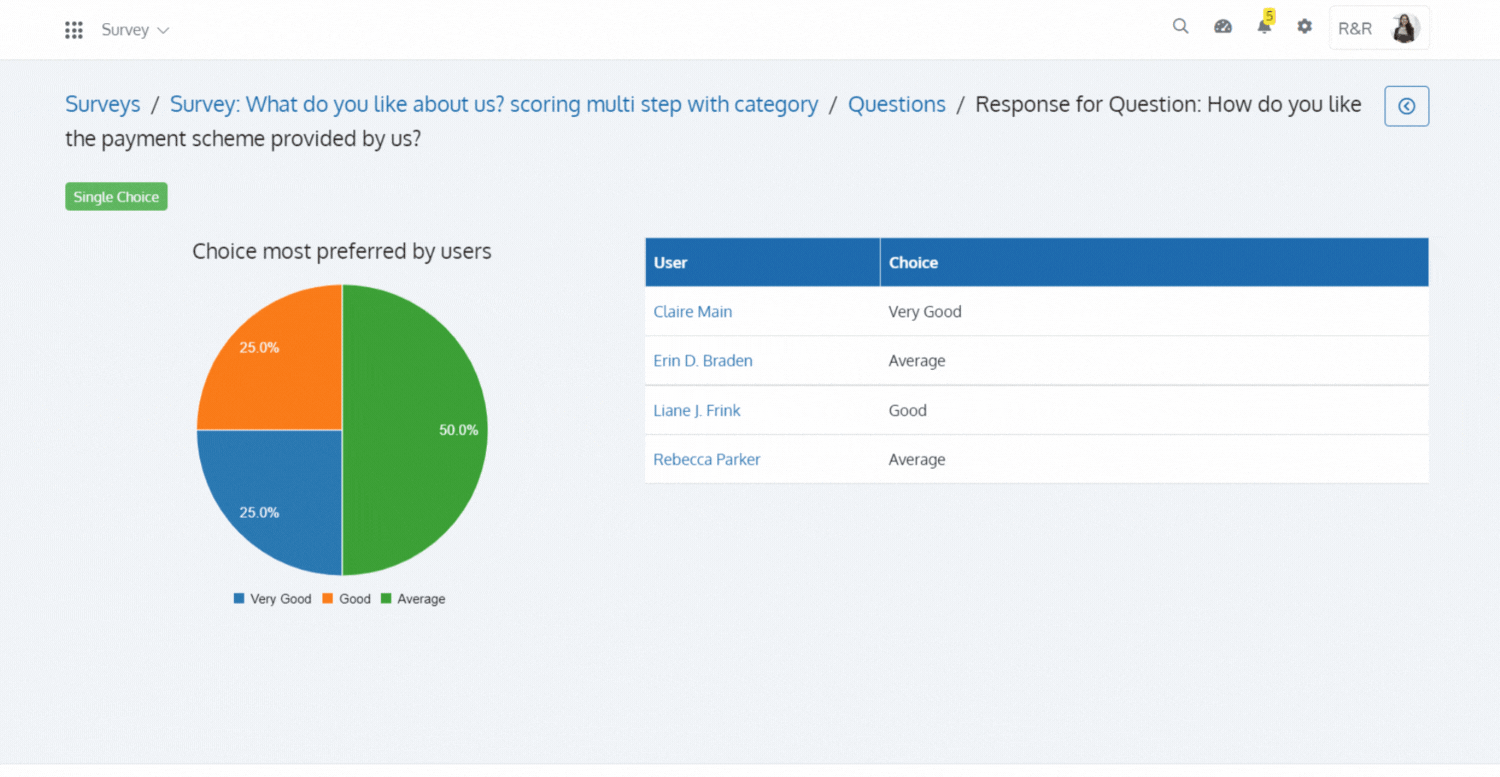
Businesses across all sectors may quickly gather candid ideas, comments, and reactions from clients and staff through surveys and then use that data to enhance operations, boost sales, cut expenses, and identify areas for product development.
